2024 Annual Report
A Message from the CEO
Rising. Relentless. Now.
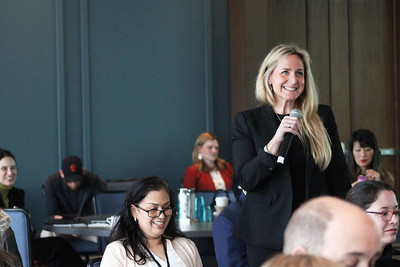
Nearly 60 years after the Health Center Program was founded out of the Civil Rights Movement, the need for health care in our underserved communities has never been greater. The rising number of challenges health centers face is staggering, and the difference that the Health Center Program makes in our nation’s health is far too significant for Congress to ignore. In 2024, Advocates for Community Health (ACH) was focused on delivering this message loudly and clearly.
This year presented numerous obstacles for health centers, including funding uncertainty, unprecedented levels of natural disasters, and severe workforce shortages – yet our commitment to serving our members has never been more meaningful. Whether it was advocating on the Hill for 340B reform, the Community Health Center Fund, Disaster Supplemental Funding, or championing new legislation like the ACH-led H.R. 1072, the Health Center Community Transformation Hub Act and Developing the Community Health Workforce Act (soon to be introduced in the 119th Congress), ACH has shifted the narrative for health centers on Capitol Hill – health centers are delivering the gold standard in primary care and should have resources they need. Finally, after years of flat funding, ACH saw its advocacy come to fruition as bipartisan congressional leaders passed the first substantial increase in health center funding in years, a 10% increase in the Community Health Center Fund in March 2024 through the end of 2024.
Completing our third year of operations, our small but mighty team has charted a path forward for health centers to shape the rapidly evolving health care landscape of the future, and I’m proud of the progress we’ve made. We look forward to 2025 with the same sense of purpose and urgency that this year brought.
ACH, in partnership with the Association of Clinicians for the Underserved, is paving the way for the creation of a coalition of advocacy groups in 2025 to address policy solutions to address workforce shortages and other workforce issues in rural and underserved areas. In addition, we are advocating for advanced payment models that make the delivery of care more flexible and patient-centric and reduce the burden on providers. ACH is diligently working towards the protection of Medicaid for health center patients, safeguarding health systems against public health emergencies, climate change, and broader emerging issues.
The numbers are with us, the energy is with us, and we’re playing the long game. And we’re going to do it holding fast to our clear purpose. Health centers can’t afford to wait any longer. The time is now.
With your continued support, we will see this Health Center Program of the future we’re building take the rightful seat in our communities, within the health care system, and beyond.
Warmly,
Amanda Pears Kelly, CEO
Policy Priorities
The Rising Need Gap
The U.S. community health center (CHC) network is the primary access point for integrated primary care and public health services for people with low incomes and those in rural and underserved areas. Health centers serve all who need care, regardless of income or ability to pay, serving as a critical access resource for chronic disease management and preventive care for over 32 million people. According to national data, 1 in 8 health center patients are children, 90% have low incomes, and nearly 10 million patients are rural residents.
Over 15,000 community health center sites across the U.S. employ more than 280,000 people while contending with slim budget margins, ongoing financial challenges, severe workforce shortages, and a rising increase in natural disasters and other emergencies.
ACH is pushing harder for policies and practices to improve health outcomes for patients and ensure the Health Center Program can thrive. Our policy goals include protecting the 340B Drug Pricing Program for health centers, enacting policies that support a resilient health center workforce, securing robust federal health center funding, creating the infrastructure necessary for advanced payment reform, achieving greater health care access, safeguarding infrastructure for health centers during the next emergency, and advancing innovations to improve health outcomes.
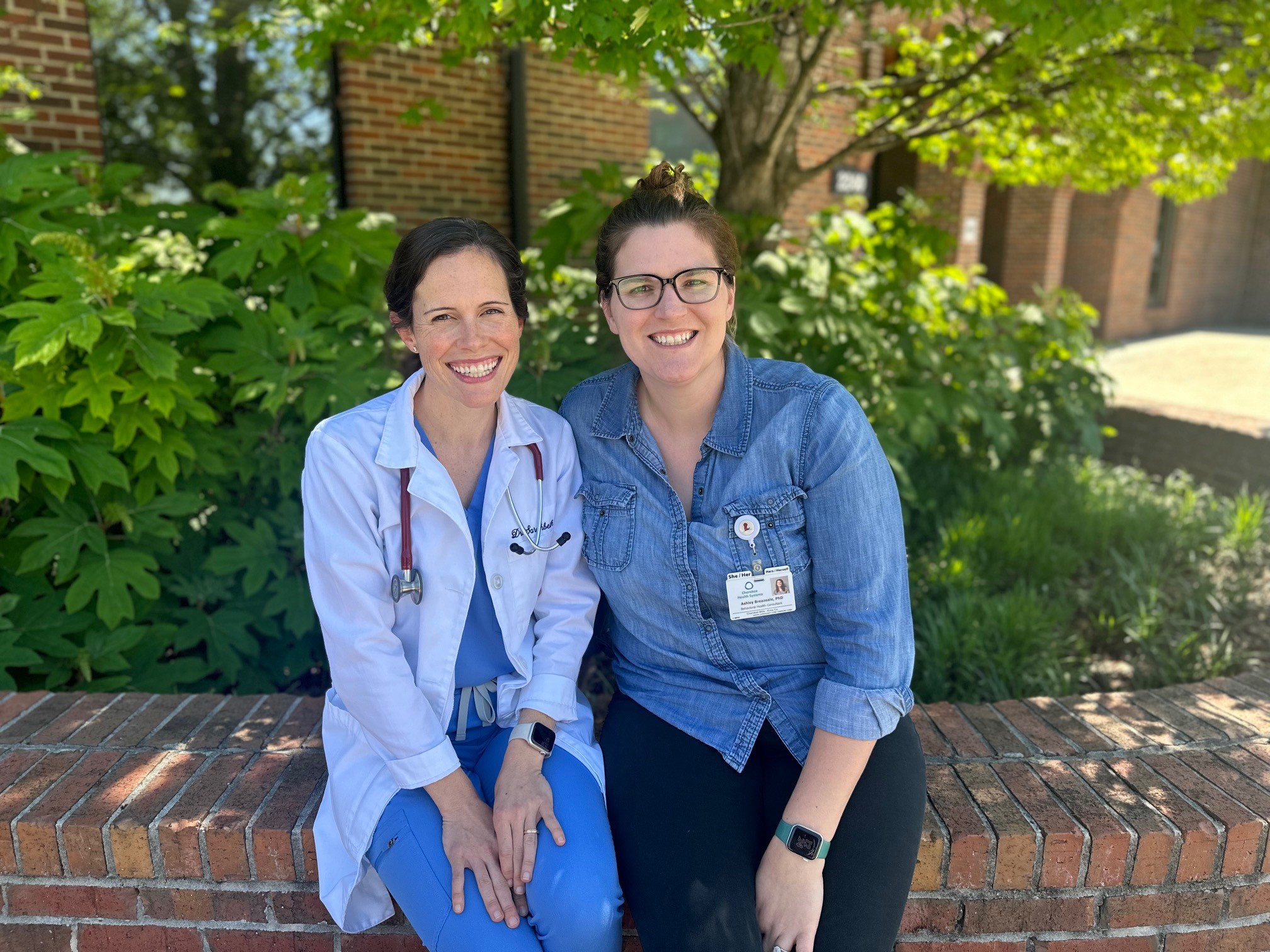
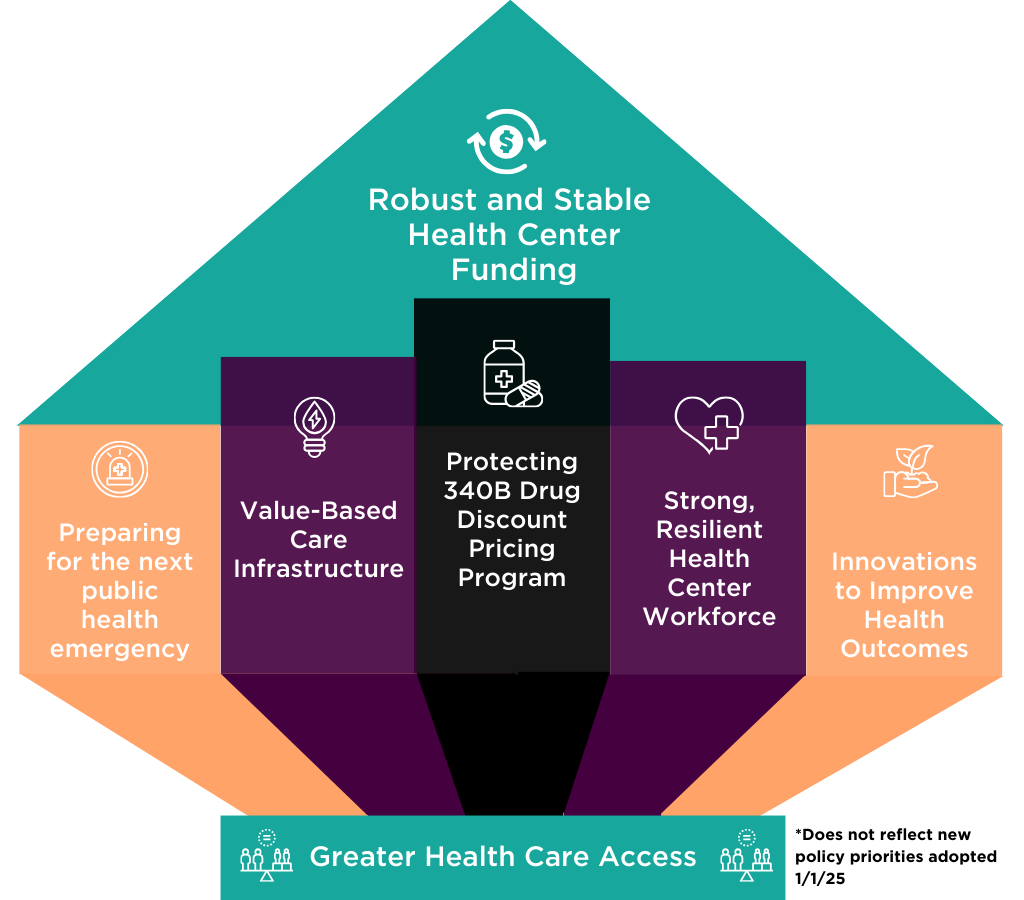
ACH By the Numbers
2021
Founded by Community Health Center Leaders
42
Members
23
New Members Since 2022
3.5M
Patients Served Annually
20
States Represented, plus DC & Puerto Rico
1,100
Average ACH Member Full-Time Employees
Policy & Advocacy
550
Number of Health Care Organization Signers on CHC Trust Fund Letter to Congress
50
Number of U.S. States Represented on CHC Trust Fund Letter to Congress
10%
Increase in Community Health Center Fund Through End of 2024
250+
Meetings Held with Key Members of Congress and Staff
2
Targeted Congressional Fly-Ins Held
50+
Policy Working Group and Primary Care Association Meetings Held
Communications & Outreach
414
Media Mentions
32
Media Placements
62%
Increase in New Website Users from 2023 to 2024
Programming
$2.7M
Dollars Awarded to 7 Entrepreneurship Challenge Grant Winners to Date
$200K
Awarded to two grant winners each in phase two of the Entrepreneur Challenge
89%
Percentage of ACH members who attended ACH’s 3rd Annual Member Meeting
12
Member Office Hours Held
3
Multi-Day Leadership Peer Learning Collaboratives Held
4
Webinars Held on Emerging Issues for Members
Relentless in Our Policy Work
January 2024
- ACH hosts a legislative Fly-In with leaders from Sun River Health (NY), Yakima Valley Farm Workers Clinic (OR & WA), and Cumberland Family Medical Centers (KY) to meet with members of Congress to urge a longer-term funding solution for health centers that will ensure that health centers have the resources they need to address critical needs in their communities.
- In an article from Inside Health Policy, ACH’s SVP of Policy & Government Affairs Stephanie Krenrich said ACH met with lawmakers late last week to urge a longer-term funding solution, commenting, “Unless Congress acts now, more than 31 million patients will be at risk.”
- An op-ed published by The Hill quotes ACH’s CEO Amanda Pears Kelly’s testimony in support of the Senate’s CHCF reauthorization bill. Pears Kelly cited data stating that health centers save $24 billion in health spending per year through more cost-effective care.
February 2024
- ACH hosts a well-attended virtual press conference in cooperation with the Association of Clinicians for the Underserved and the American Association of Teaching Health Centers to address health care funding and the health care workforce crisis. Health center leaders from across the country shared the challenges their overstretched workforce are facing and urged leaders in Washington to take action and invest in immediate and long-term solutions.
- Inside Health Policy extensively covers ACH’s virtual press conference and reports how another continuing resolution would be disastrous for CHCs and workforce programs. “We are advocating as hard as we can through those negotiations to see as much investment as possible and for as long a duration as possible,” said ACH’s Amanda Pears Kelly. “The implications of continuing to delay this are human, you know? It comes back to patients.”
March 2024
- After years of flat funding, ACH saw its advocacy come to fruition as bipartisan congressional leaders passed the first substantial increase in health center funding in years, a 10% increase in the Community Health Center Fund through the end of 2024.
- ACH holds its 3rd Annual Member Meeting and Hill Day with an impressive array of guest speakers and panelists, including Former Senator Roy Blunt (R-MO); Chair of the House Committee on Energy and Commerce’s Health Subcommittee Brett Guthrie (R-KY); former Senator John Breaux (D-LA); HRSA Administrator Carole Johnson; Principal Deputy Administrator & Chief Operating Officer at CMS Jonathan Blum, and more.
- The Accountable Care Organizations (ACOs) Primary Care Flex Model, which considers the unique needs of community health centers, is announced. It was influenced by ACH’s ongoing engagement with the CMS Innovation Center.
- Inside Health Policy interviews ACH’s Stephanie Krenrich, who points out that the current, flat funded $1.9 billion level of discretionary funding for health centers will not achieve the long-term stability CHCs need amid ongoing issues with inflation, workforce shortages, and other pressures. “While we understand the difficult budget environment on Capitol Hill and are grateful that our funding has held steady, this is one more reason that multi-year, stable, and increased funding for the mandatory Community Health Center Fund is so necessary,” said Krenrich.
- In an article about the congressional Health funding deal, POLITICO covers ACH’s position on CHC funding, adding that ACH echoed HELP Committee Chairman Bernie Sanders’ (I-VT) sentiment, applauding the funding increases while asking leaders to find long-term solutions.
April 2024
- In a letter to congressional leadership expressing support for the bipartisan “Gang of Six” 340B Senate Working Group Draft, the SUSTAIN 340B Act, ACH says it is pleased to see many elements of ACH’s 340C proposal included in the SUSTAIN Act and strongly supports the comprehensive reform effort.
- ACH submits its statement for the record and applauds the Senate Committee on Health, Education, Labor and Pensions (HELP) for holding a hearing highlighting the importance of food and nutrition in improving health outcomes.
- Modern Healthcare interviewed ACH’s Amanda Pears Kelly on the federal budget process and rural CHC funding. “It’s kind of disgraceful, honestly, at this point, and irresponsible,” said Pears Kelly. “How do you operate a small business — or a large business for that matter, it doesn’t matter the size — when you don’t have financial solvency for more than six to nine months at a time?”
- POLITICO covers ACH’s statement commenting on a recent Government Accountability Office (GAO) report, “Health Centers: Revenue, Grant Funding, and Methods for Meeting Certain Access-to-Care Requirements.” The statement provided context in light of assertions that the report showed already sufficient health center funding amid calls for increases: “The report shows a slower rate of increase in funding than the preceding five years, with a more volatile funding mix than that of other primary care providers,” added ACH, with additional comments about health centers being severely under-resourced.
May 2024
- ACH launches a 340C campaign and white paper designed to address ongoing issues within the 340B Drug Discount Pricing Program and protect 340B funding for health centers. ACH also hosts a virtual meeting with over 130 attendees open to all health centers and other stakeholders on the latest federal 340B policy and reform. For its outreach efforts, ACH receives significant national media attention for its policy messaging in CBS News, U.S. News & World Report, and Modern Healthcare and inside-the-beltway coverage from Inside Health Policy, POLITICO, The Hill, and Roll Call.
- For the Senate Committee on Health, Education, Labor and Pensions (HELP)’s hearing on what Congress can do to address the severe shortage of minority health care professionals and the maternal health crisis, ACH submits a statement for the record to inform members of Congress about the role of CHCs in maternal health and on policies that can help mitigate shortages of minority health care professionals.
- In collaboration with the National Association of Rural Health Clinics, ACH urges the full Energy and Commerce Committee to markup and advance the Telehealth Modernization Act as soon as possible, to ensure telehealth payment parity for federally qualified health centers and rural health clinics.
- ACH’s CEO Amanda Pears Kelly submits outside witness testimony for the House and Senate Appropriations Committees’ Subcommittees on Labor, Health and Human Services, Education, and Related Agencies, regarding the Department of Health and Human Services’ Health Resources and Services Administration, Bureau of Primary Health Care, requesting $3.2 billion in
discretionary funding for the Health Center Program in Fiscal Year 2025. - ACH’s SVP of Policy and Government Affairs Stephanie Krenrich provides comments and input for HRSA’s FY 2026 Budget Listening Session on behalf of health centers.
June 2024
- ACH hosts a critical 340B discussion, open to all community health centers and other stakeholders, on the latest federal 340B policy and reform. This event and ACH’s analysis of 340B reform and legislation were covered extensively by the 340B Report.
- In response to the House Committee on Energy and Commerce, Subcommittee on Oversight and Investigations Hearing, “Oversight of the 340B Drug Pricing Program,” ACH offers testimony to share its perspectives on the trends and developments from the perspective of community health centers.
- ACH writes to Chair of the Senate Finance Committee Ron Wyden (D-OR) and Ranking Member Mike Crapo (R-ID) to share recommendations from the perspective of community health centers to improve physician payment reform and chronic disease management and coordination.
- Roll Call interviews ACH about new 340B legislation and ACH’s position on the 340B Access Act, noting ACH’s concerns about the bill’s impact on health centers’ continued ability to utilize the program.
July 2024
- ACH hosts a congressional briefing, in collaboration with the House Bipartisan Rural Health Caucus and the House Maternity Care Caucus, to educate members of Congress and staff on the pivotal role federally qualified health centers play in enhancing access to maternal health in rural and underserved communities and urge increased funding for the Health Center Program. Representatives Robin Kelly (D-IL), Young Kim (R-CA), and Jill Tokuda (D-HI) provide remarks on the value of health centers. Several ACH members serve as panelists, presenting their health centers’ crucial and unique roles in providing essential and life-saving care.
- The Centers for Medicare & Medicaid Services (CMS) announces a new voluntary primary care model—the Making Care Primary (MCP) Model. This 10.5-year model has the potential to result in significant cost savings for all community health centers across the network. This model culminates over a year of nationwide discussions between the CMS Innovation Center, ACH, and stakeholders. ACH was pivotal in integrating health-related social needs and behavioral health into the model.
- In response to Senators Sheldon Whitehouse (D-RI) and Bill Cassidy (R-LA)’s request for information, ACH provides feedback from the perspective of community health centers on newly introduced bipartisan legislation, S. 4338, the Pay PCPs Act, which would create a hybrid primary care payment in Medicare.
August 2024
- ACH celebrates National Health Center Week with a week of grassroots advocacy.
- Modern Healthcare interviews ACH’s Stephanie Krenrich on stalled bipartisan 340B reform legislation. Stephanie comments, “The program has begun to narrow over time because of the actions of pharmaceutical companies, because of the actions of PBMs and others. This is a really important program for community health centers and other entities.”
- Axios interviews ACH’s Amanda Pears Kelly, who says: “Health centers are stepping up to the plate to keep their communities healthy amid rising demand. But the reality is … it’s also not sustainable.” She added, “Congress needs to increase long-term federal funding for both health centers and workforce programs like the National Health Service Corps to meet the demand for care.”
September 2024
- ACH co-sponsors a panel discussion on “Empowering Black Fathers to be Allies for Black Maternal Health” at the Congressional Black Caucus Foundation Annual Legislative Conference, shedding light on the critical role and experiences of Black fathers in community health.
- ACH delivers a letter to congressional leaders signed by over 550 national, state, and local organizations representing all 50 U.S. states and territories. The letter outlines the critical need for a robust funding increase for the Community Health Center Trust Fund, which is set to expire on December 31, 2024. This was covered extensively in POLITICO, AP News, Yahoo Finance, and many state and regional news outlets.
- ACH launches a launches a grassroots campaign to voice support for the Health Center Community Transformation Hub Act, H.R. 1072, introduced by Rep. Yvette Clarke (D-NY). This bill authorizes specialized grants to community health centers to lead networks of community-based organizations that address social drivers of health.
- ACH provides input to CMS on its proposed changes outlined in the Medicare Physician Fee Schedule for calendar year 2025. ACH supports the CY 2025 Medicare Physician Fee Schedule proposals that aim to increase access to quality care for beneficiaries in the community health center care setting.
- ACH issues a statement to applauding HRSA’s strong and clear statement to Johnson and Johnson that their newly proposed rebate model is not consistent with the 340B Drug Discount Pricing Program. ACH’s statement was covered in Bloomberg Law and Inside Health Policy.
October 2024
- ACH staff engages in a series of meetings with Congressional staff from key leadership and committee offices on the anticipated end of year health care package, advocating for sustained, increased funding and a long-term reauthorization of the Community Health Center Trust Fund.
- ACH continues its collaboration on the Developing the Community Health Workforce Act with Congressman Raul Ruiz (D-CA), finalizing the bill’s provisions, creating strategy to ensure bipartisan support, and developing a plan for community awareness and engagement.
November 2024
- ACH publishes its report on The Critical Role of 340B at FQHCs which outlines how the 340B Drug Pricing Program is a game changer for federally qualified health centers (FQHCs), which have limited flexible funding streams at their disposal and often use their 340B savings for services that are non-reimbursable.
- ACH kicks off its largest peer learning collaborative yet on the 340B Program, with 16 members from seven states, on November 13, 2024, in Washington, DC. At the top of mind is protecting the 340B Drug Discount Pricing Program for health centers.
- In a letter to congressional leadership in partnership with the National Association of Rural Health Clinics, ACH expresses strong support for the Telehealth Modernization Act, H.R.7623, to ensure telehealth payment parity for federally qualified health centers and rural health clinics.
- “There’s so much evidence of the value and the return that health centers bring. The Teaching Health Center program is more recent, but for the National Health Service Corps and the Health Center program specifically, we have decades of evidence of the impact — clinically and economically,” ACH’s CEO Amanda Pears Kelly told Inside Health Policy. “And so not only would it be ill-advised to somehow forget all of that, but the human harm that would come as a result of that is pretty massive.”
- ACH is mentioned in POLITICO for its advocacy pushing for a reauthorization of the Community Health Center Fund for at least three years with a minimum of $5.8 billion a year.
December 2024
- ACH submits its end-of-year legislative package request to congressional leadership, urging Congress to: 1) reauthorize the Community Health Center Fund for two years at $5.8 billion per year, 2) pass a disaster supplemental funding bill that provides dedicated funding for health centers to recover from recent natural disasters, and 3) reauthorize the National Health Service Corps mandatory funding stream at $950 million per year for two years and an increase in funding for the Teaching Health Centers Graduate Medical Education program to $300 million per year for five years.
- In a demonstration of alignment on the urgency of community health center funding, Amanda Pears Kelly joins the National Association of Community Health Centers (NACHC)’s CEO Kyu Rhee to record a joint statement urging Congress to prioritize health center patients before health center funding runs out at the end of the year.
- ACH joins the Primary Care Collaborative to amplify the role of community health centers and their fundamental role in providing high-quality primary care to tens of millions of Americans.
- In an article from 340B Report, which states that AbbVie will expand its contract pharmacy restrictions with new claims data reporting requirements for 340B grantee covered entities, ACH’s Stephanie Krenrich said ACH recognizes the need for compliance with the 340B statute and is advocating for policy proposals that would increase accountability and transparency for covered entities. “However, it is the role of government regulators, not private-sector pharmaceutical manufacturers, to adjudicate compliance with a federal program. AbbVie joins the ever-growing list of pharmaceutical manufacturers who pile on onerous reporting requirements in an attempt to unlawfully narrow a program that exists solely to support care for the underserved.”
Relentless: Policy & Advocacy
340B Reform for Community Health Centers
The 340B Drug Pricing Program is a game changer for FQHCs, which have limited flexible funding streams at their disposal and often use their 340B savings for services that are non-reimbursable. The 340B Drug Discount Program is in critical danger and must be protected to serve the more than 32 million community health center patients at stake. Advocacy for 340B reform was a major focus of ACH’s policy and advocacy work in 2024.
● 340B Reform White Paper
● Special Report: The Critical Role of 340B at FQHCs
● Statement on HRSA’s Letter to J&J on 340B Model Proposal
● Position on the Latest 340B Policy & Reform

CHC Funding
In addition to more than three years of consistent advocacy on Capitol Hill, ACH delivered a letter from more than 550 national, state, and local health care organizations representing 50 states and U.S. territories that urges Congress to increase funding for community health centers (CHCs) through the Community Health Center Fund reauthorization. ACH continued to advocate for immediate and long-term funding throughout the year.
● CHC Funding Sign-On Letter
● Year-End Package Letter
● Statement on Disaster Supplemental for Health Centers
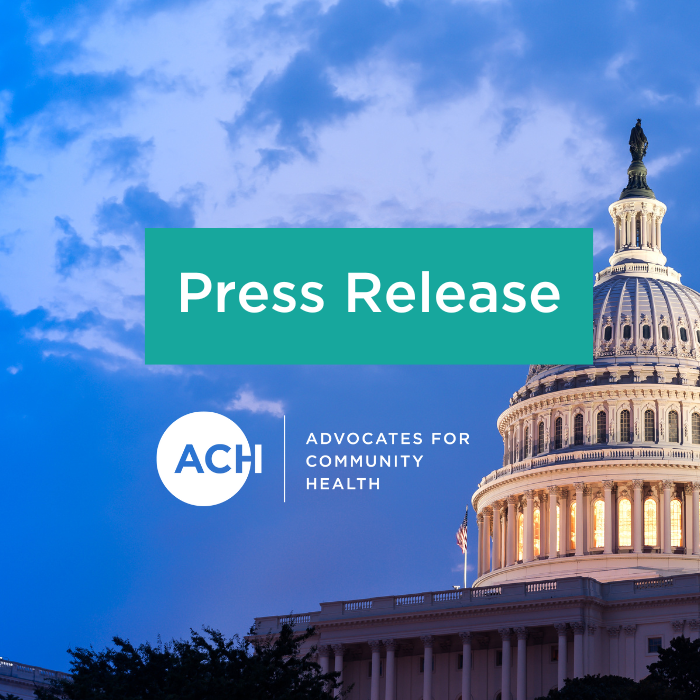
Value-Based Care
The Centers for Medicare & Medicaid Services (CMS) announced a new voluntary primary care model: the Making Care Primary (MCP) Model. This 10.5-year model has the potential to result in significant cost savings for all community health centers across the network. It culminates over a year of nationwide discussions between the CMS Innovation Center, ACH, and stakeholders. ACH was pivotal in integrating health-related social needs and behavioral health into primary care.
Read More
United in Advocacy
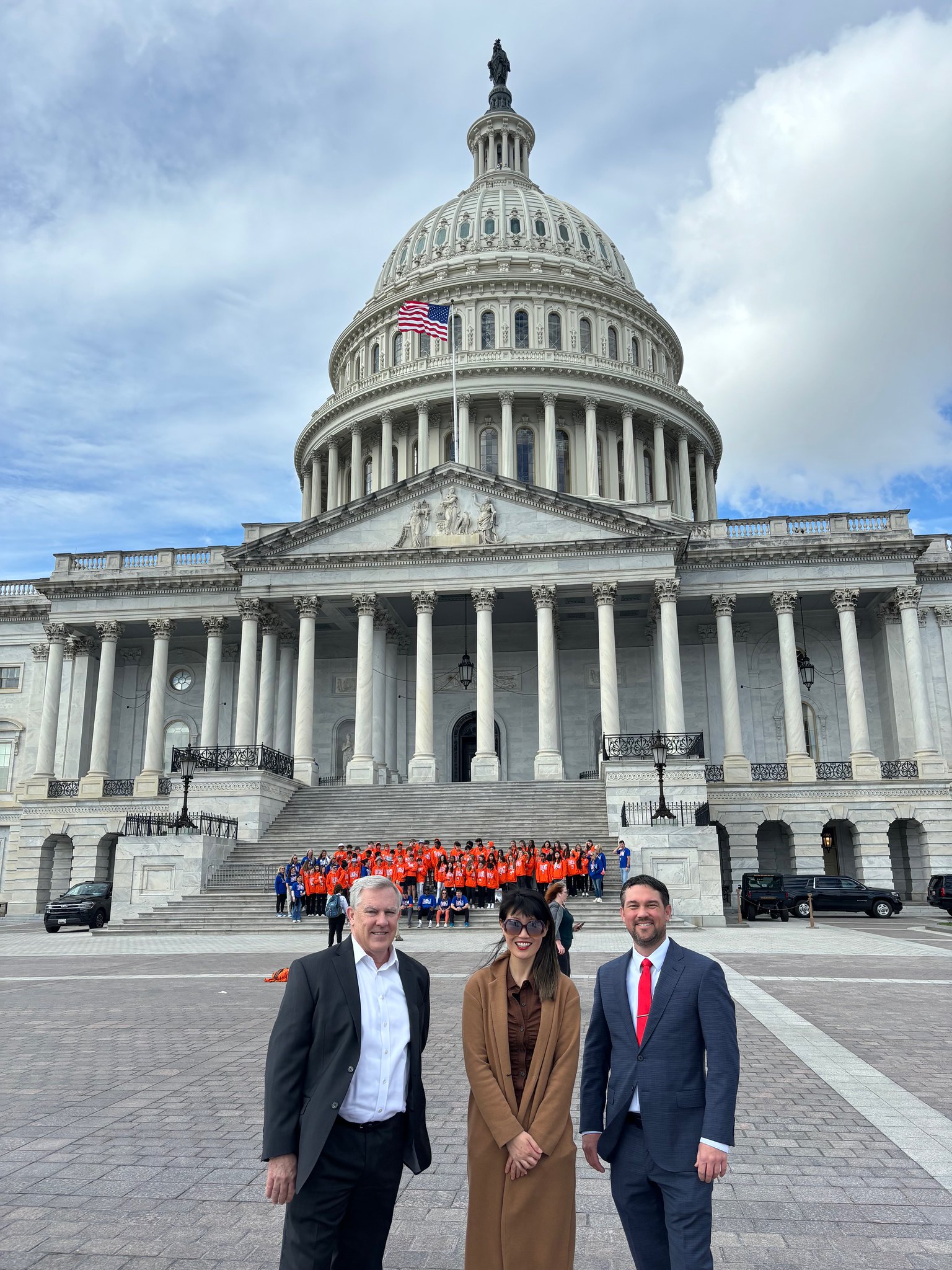
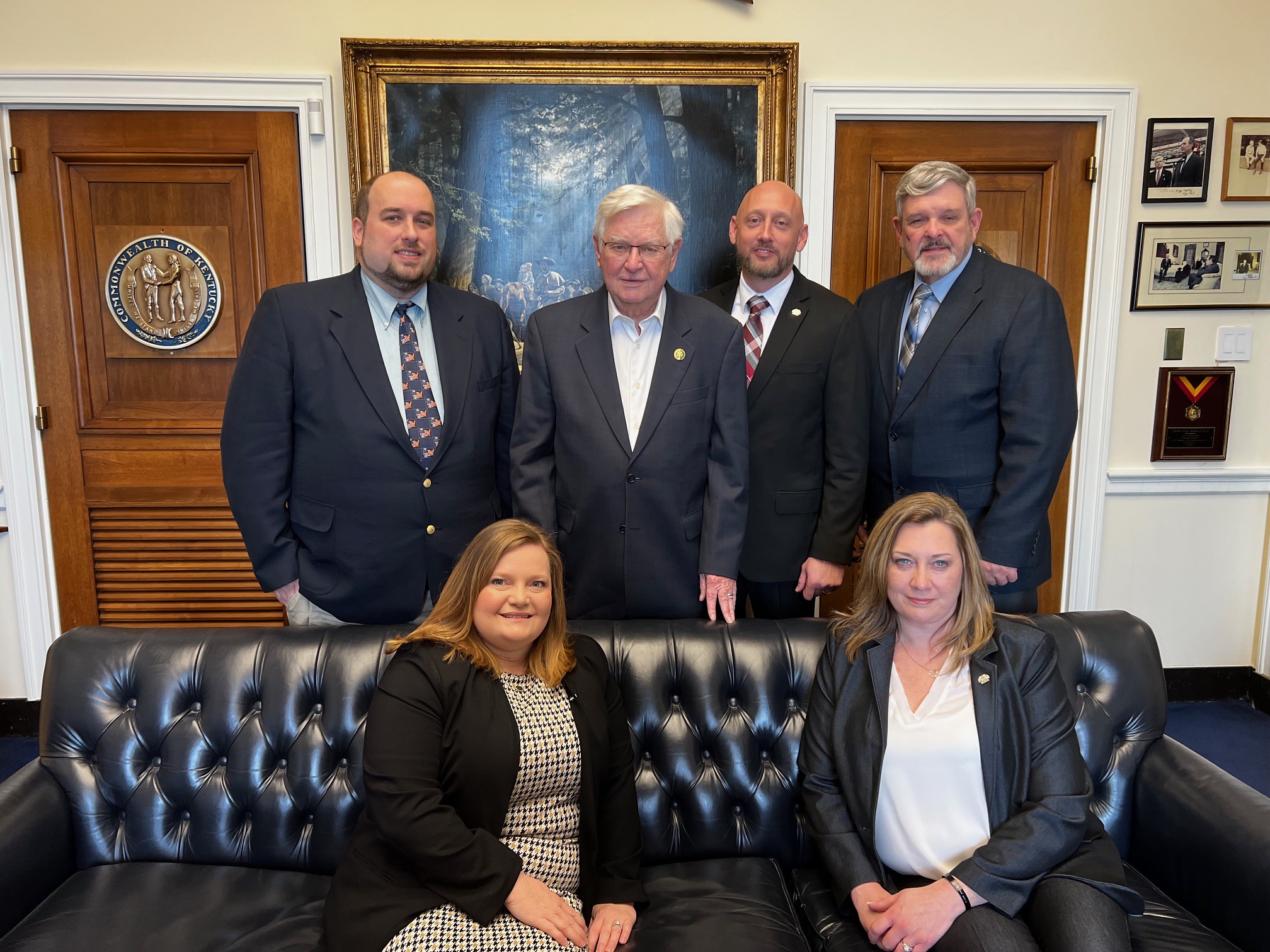
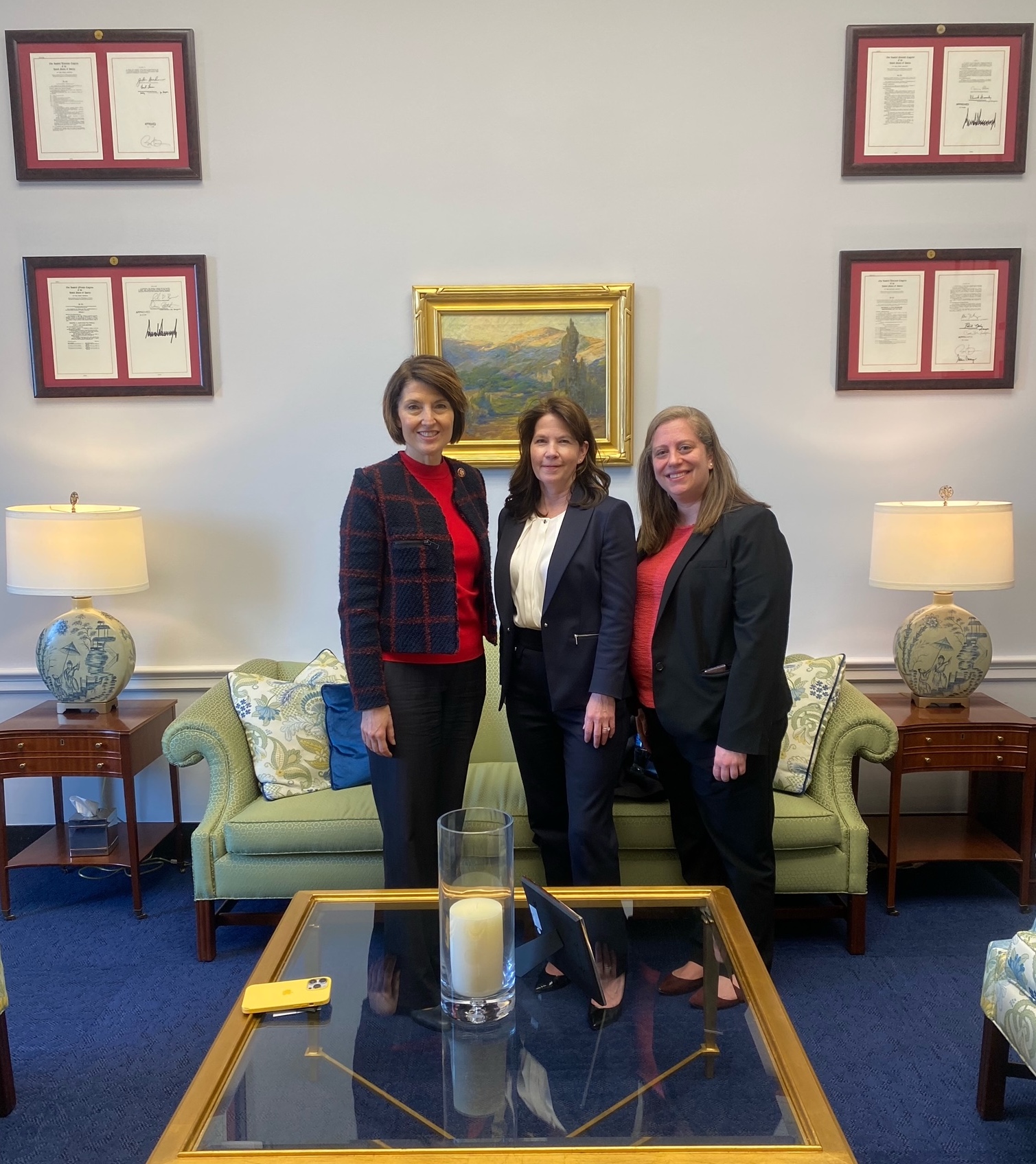
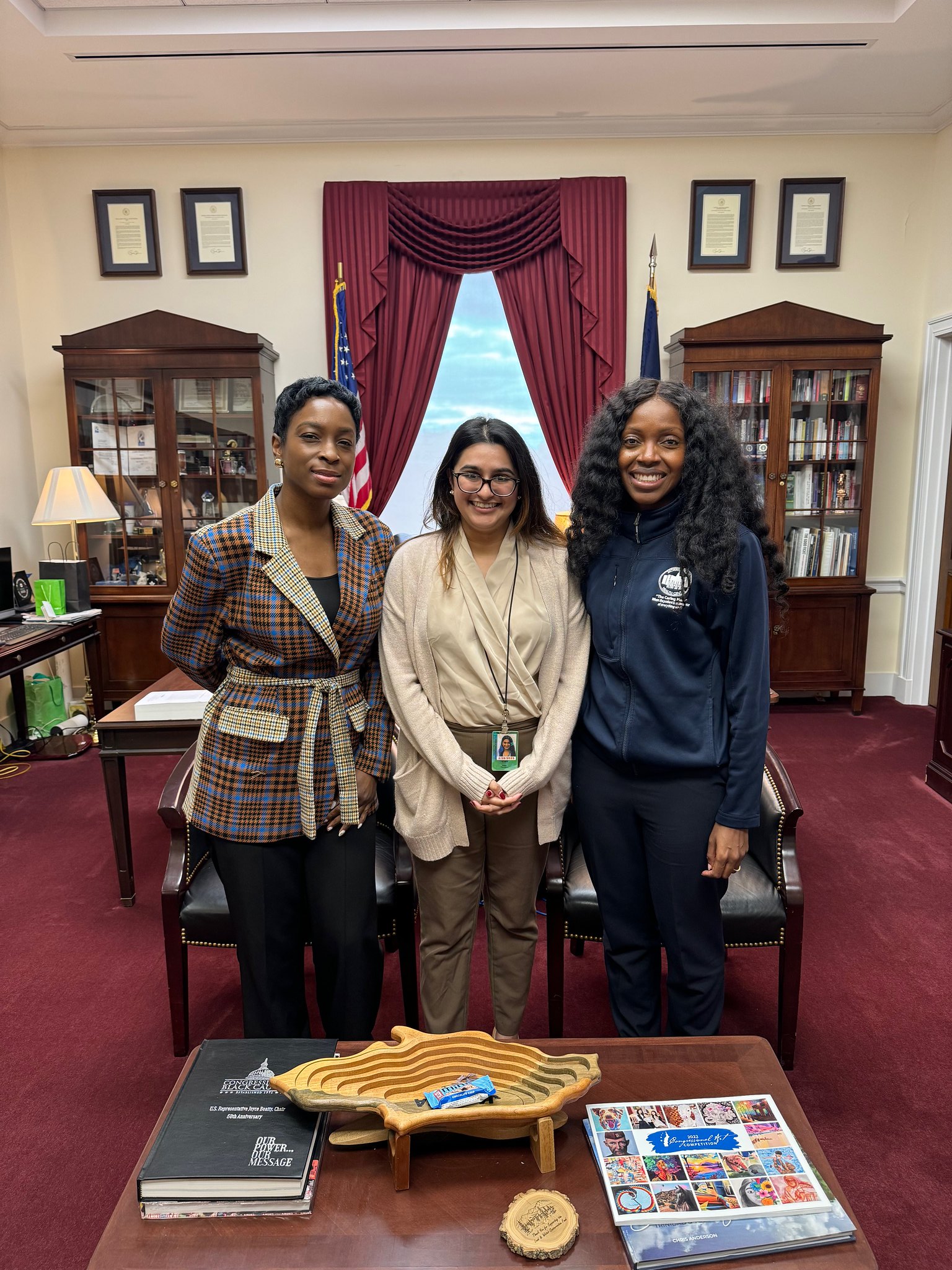
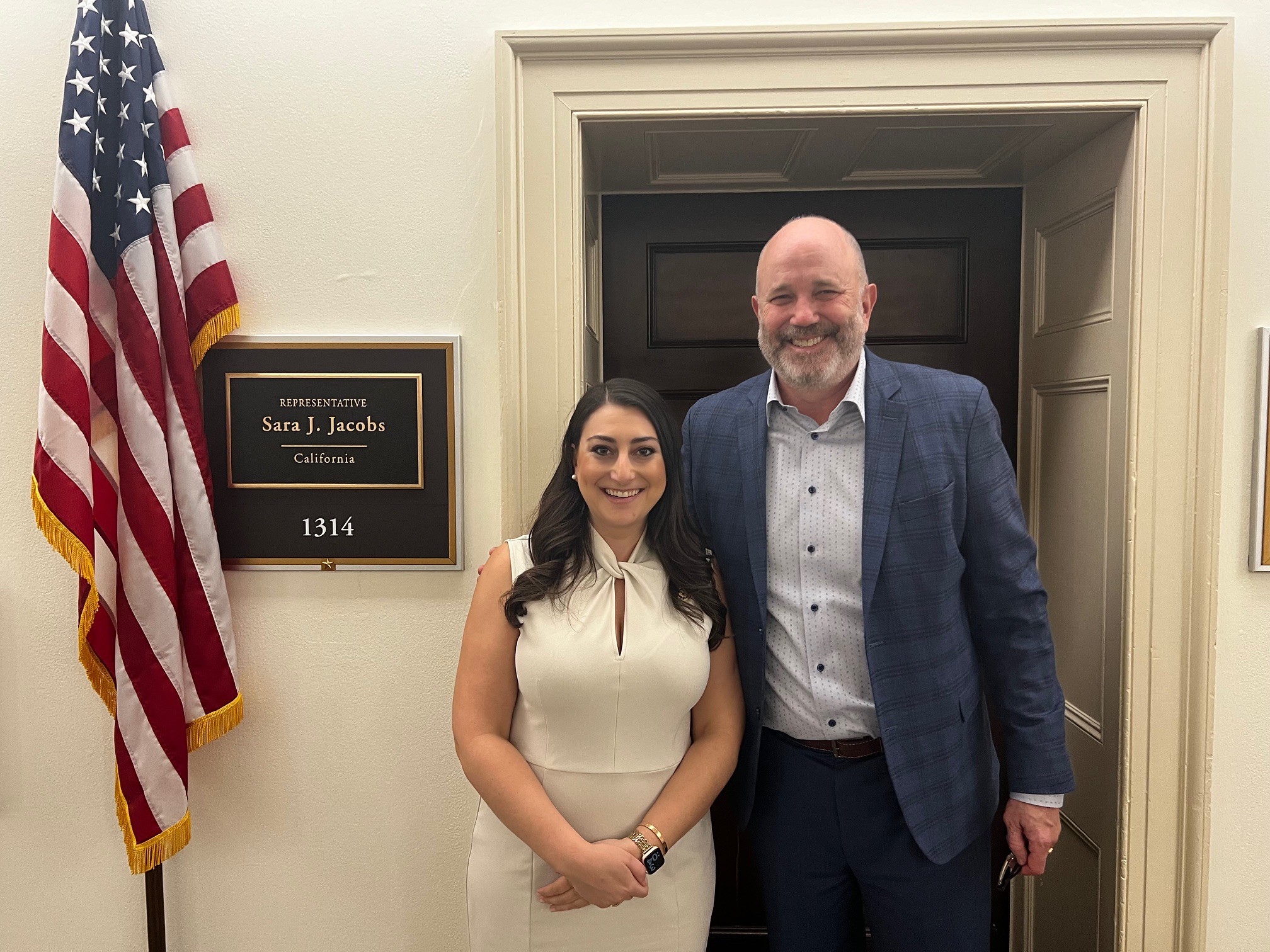
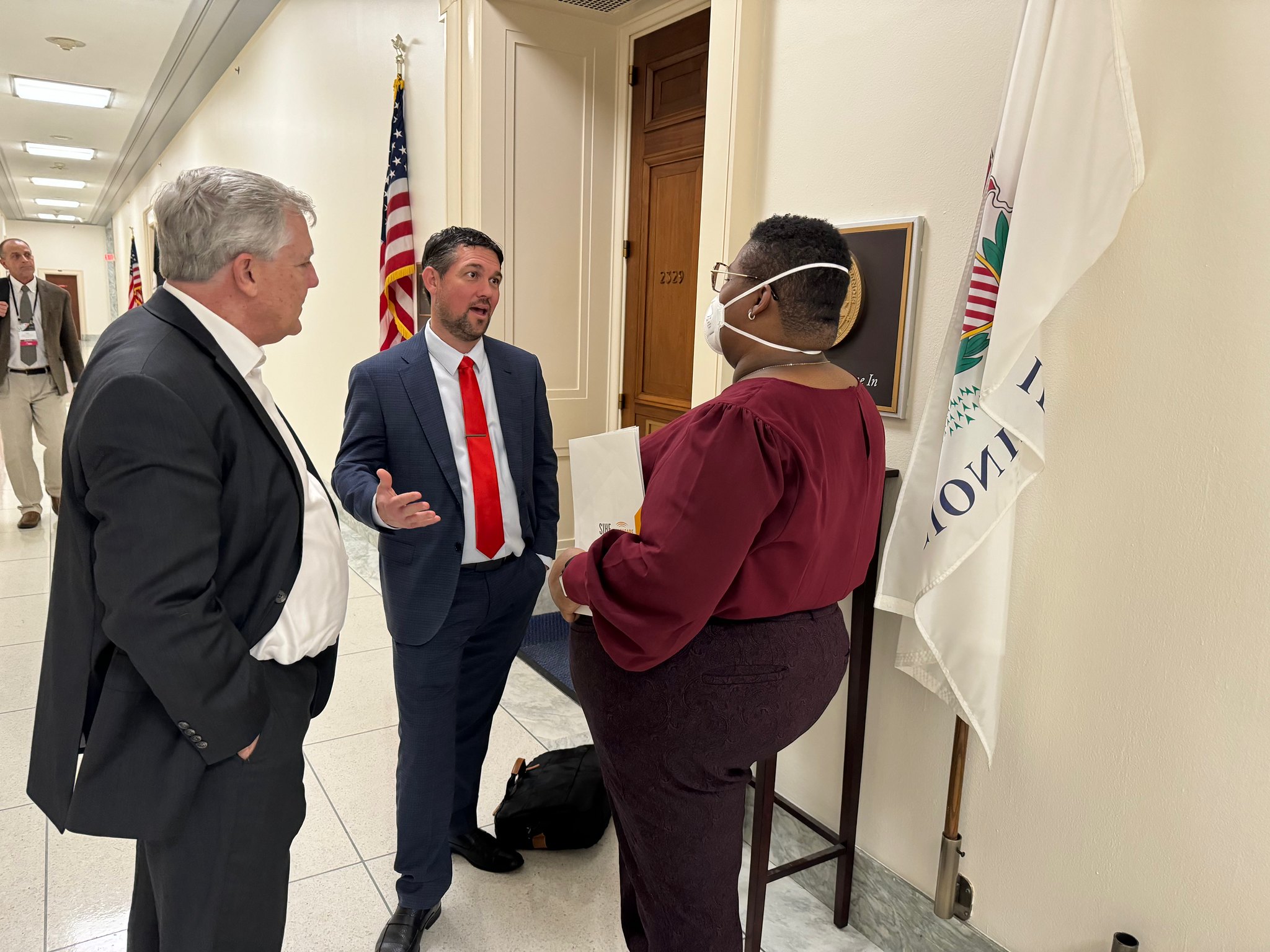
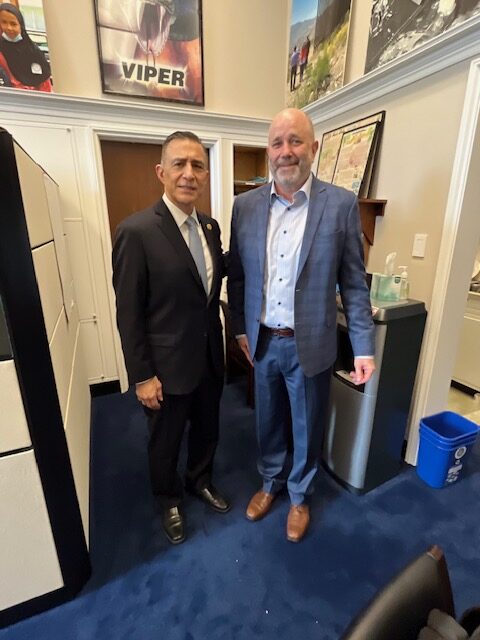
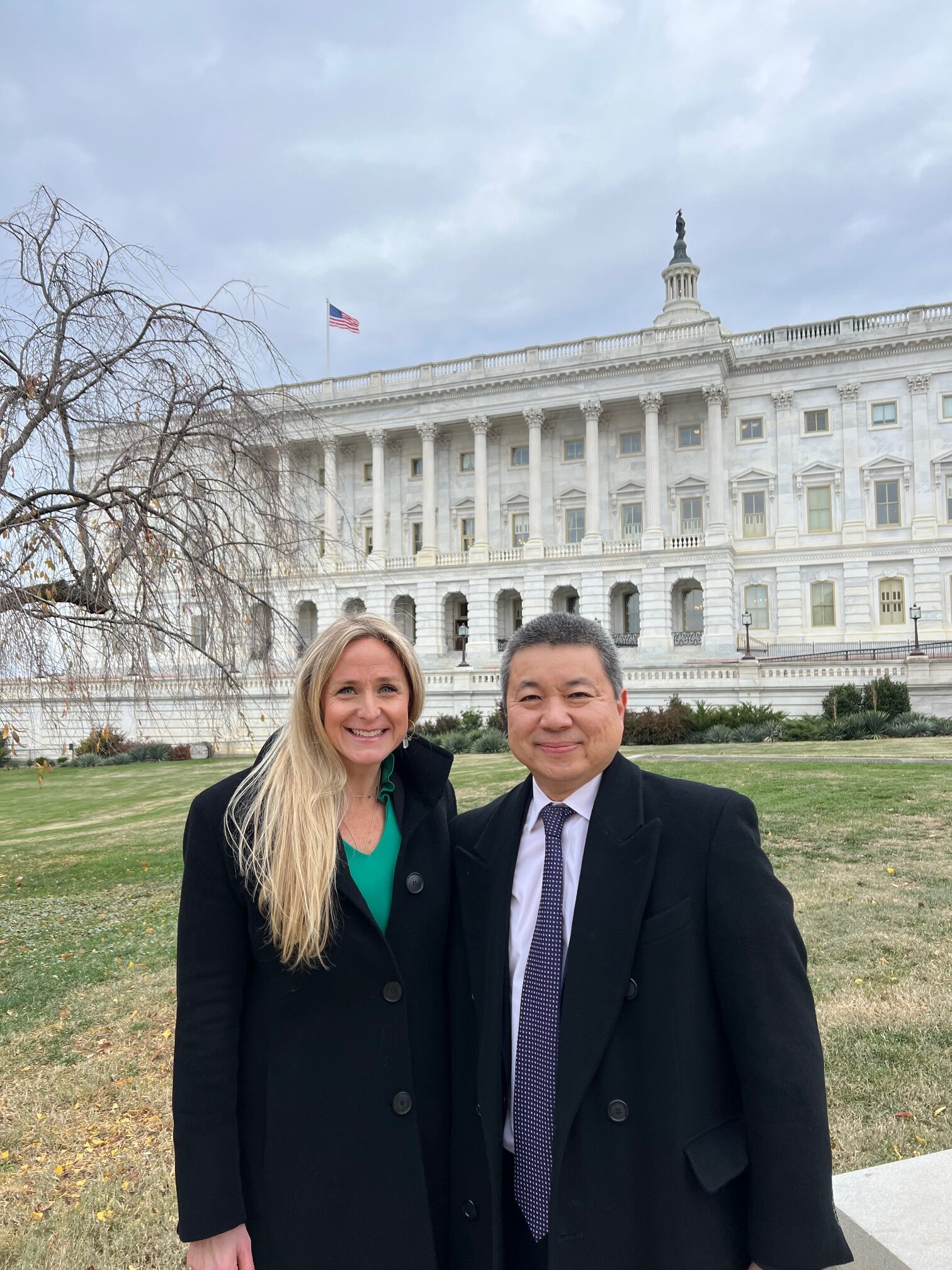
Rising: ACH Members
Community Health Entrepreneur Challenge
The $100,000 grant funding from ACH’s Community Health Entrepreneur Challenge, in partnership with UnitedHealthcare Community & State, will help Cherokee Health Systems build a data-driven and precision medicine approach to reducing disparities in care.
Lone Star Circle of Care received $100,000 from ACH’s Community Health Entrepreneur Challenge to implement a new innovative artificial intelligence medical coding solution to assist more than 355,000 visits from nearly 100,000 patients served each year.
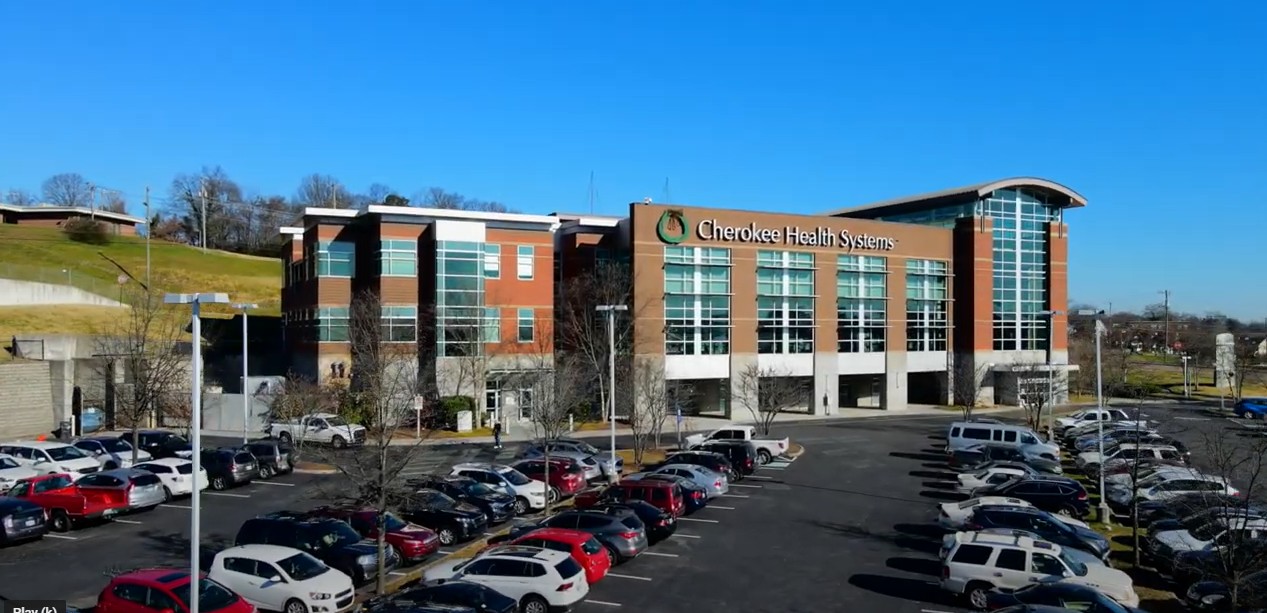
Expanding Mental Health and Substance Use Disorder Services to Patients
See how these ACH members plan to use their portion of HRSA’s $240 million in grant funding to expand mental health and substance use disorder services to patients at community health centers.
Read more
ACH in Action
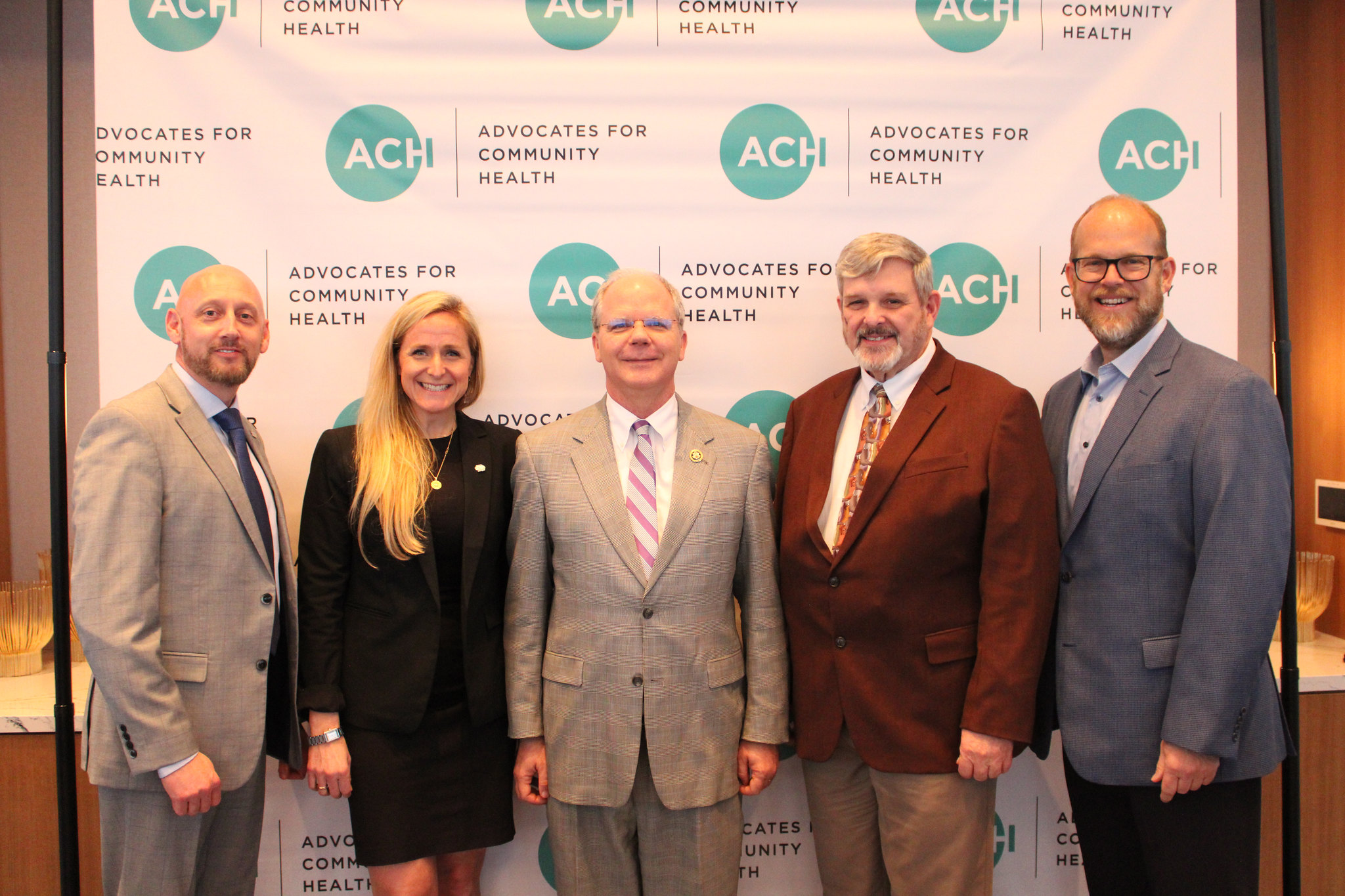
Congressman Brett Guthrie (R-KY) with ACH members Mountain Comprehensive Health Center located in KY at ACH's 3rd Annual Member Meeting.
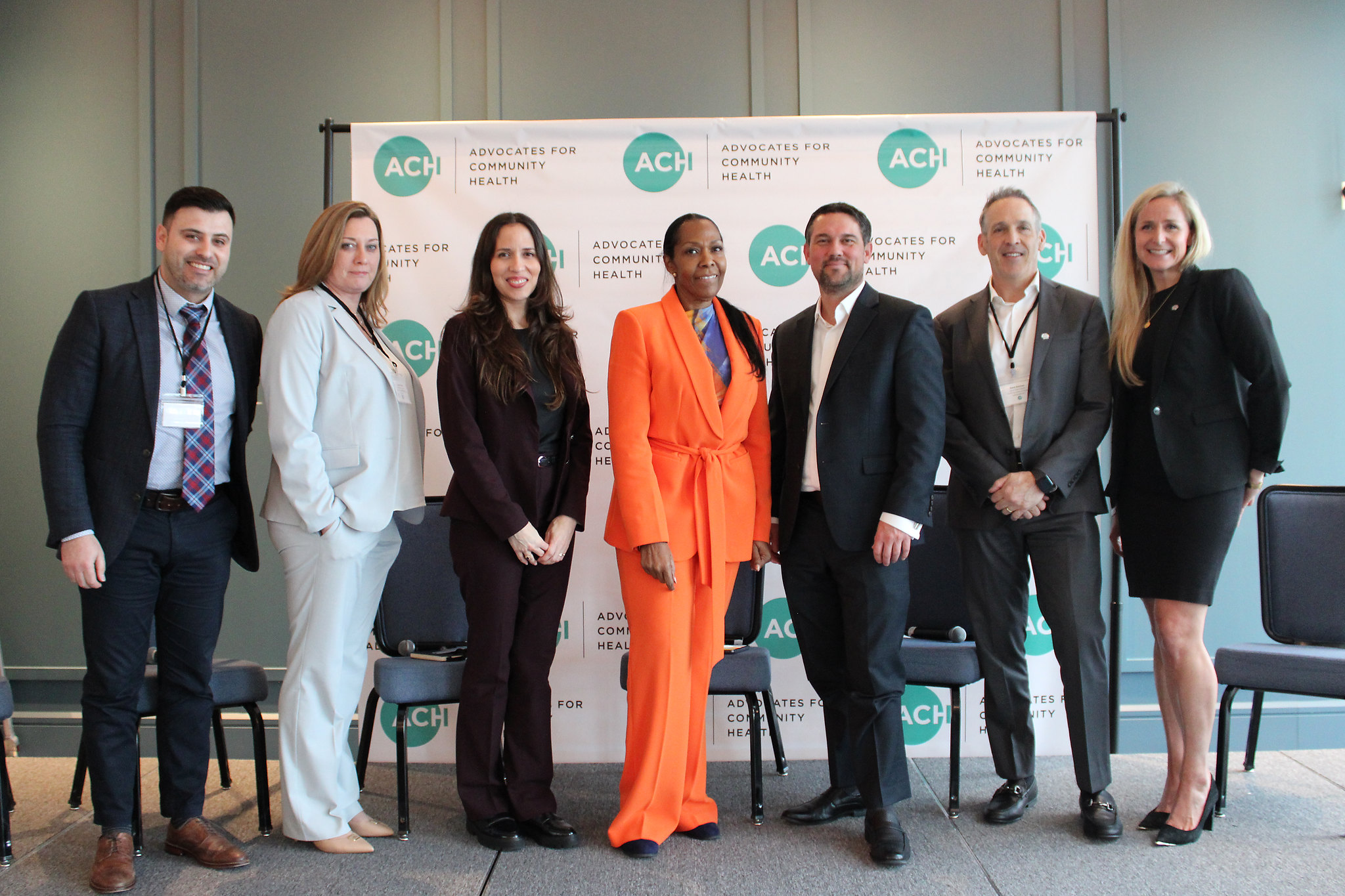
Entrepreneur Challenge Winners received $500,000 each from ACH and UnitedHealthcare to address the needs of underserved populations in their communities.
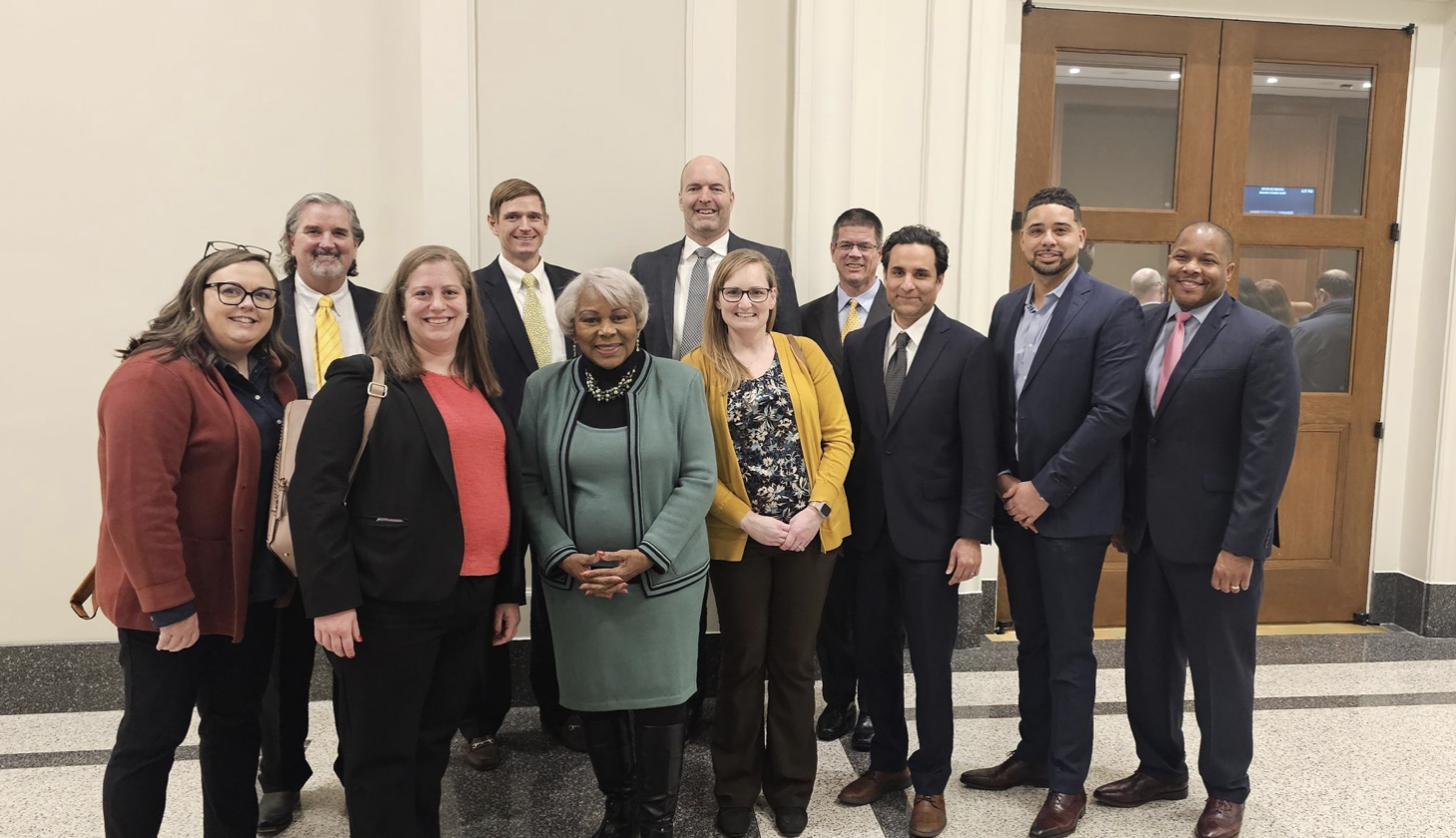
ACH's Stephanie Krenrich testifies in the VA Senate in support of SB 119 on 340B reform for health center patients.
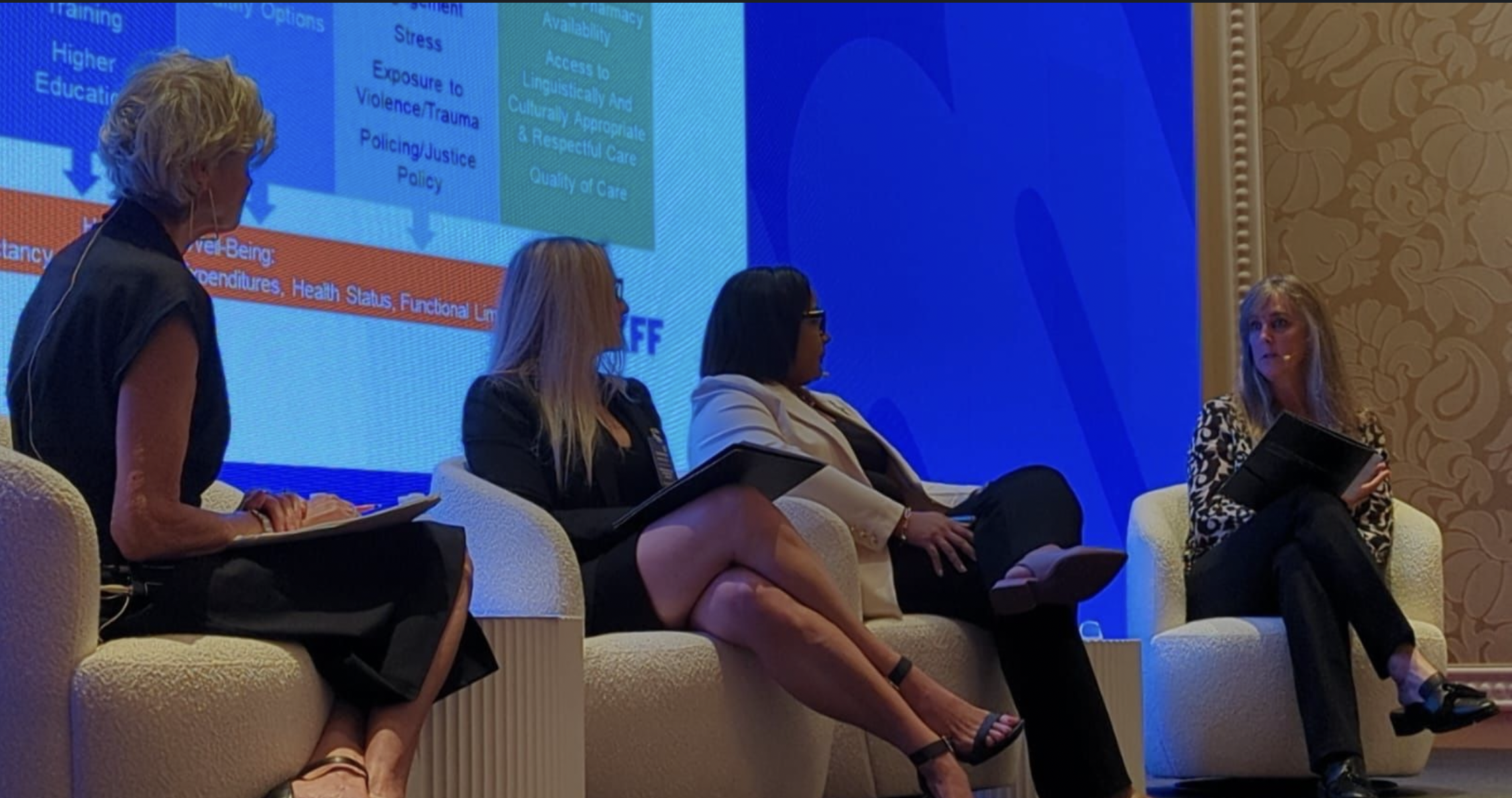
ACH's Amanda Pears Kelly is invited to be a panelist at the ACO & Payer Leadership Summit in Boston on funding for social determinants of health.
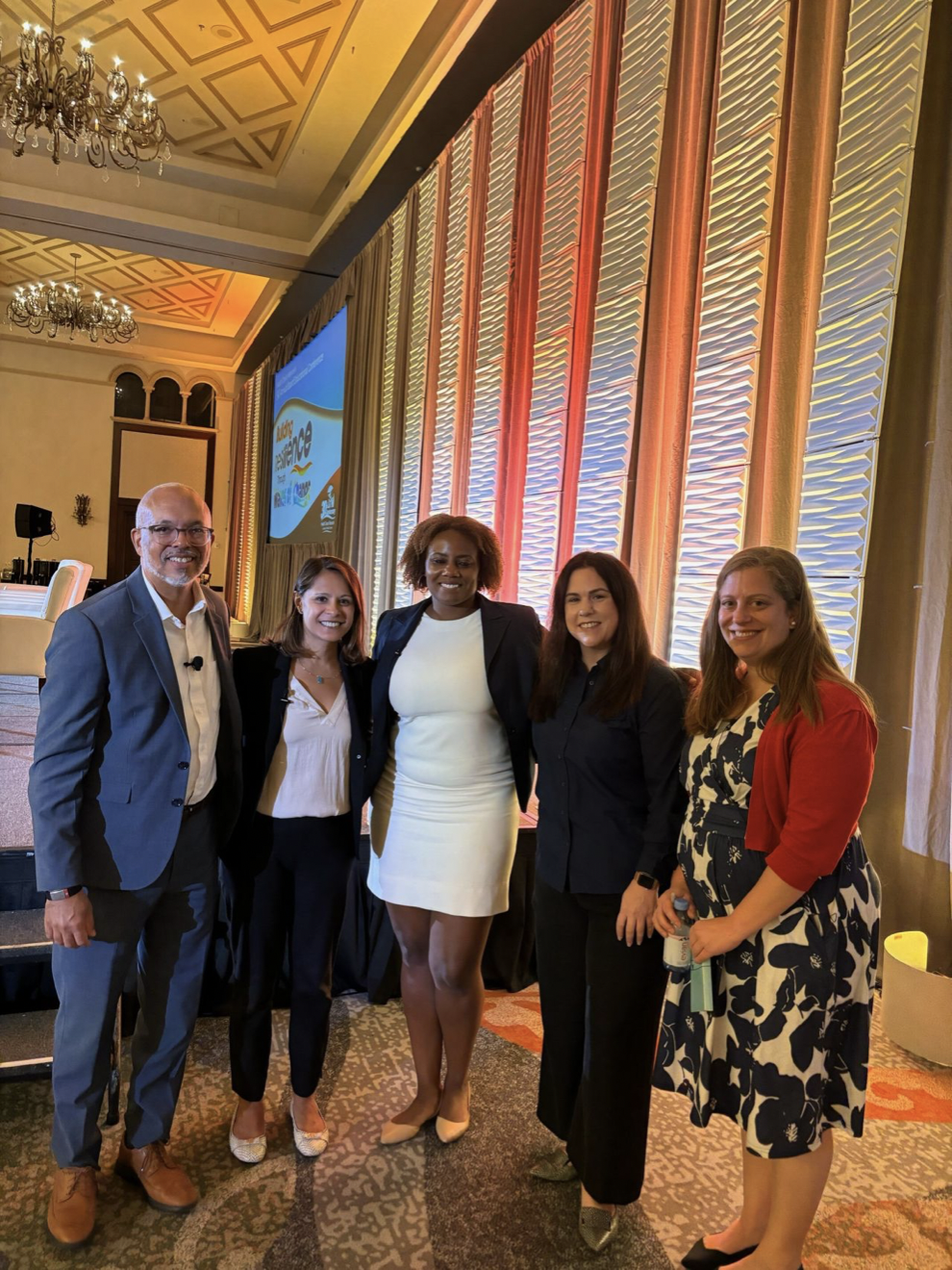
Stephanie Krenrich is invited to speak at the Health Choice Network Conference in Tampa on value-based care policy.
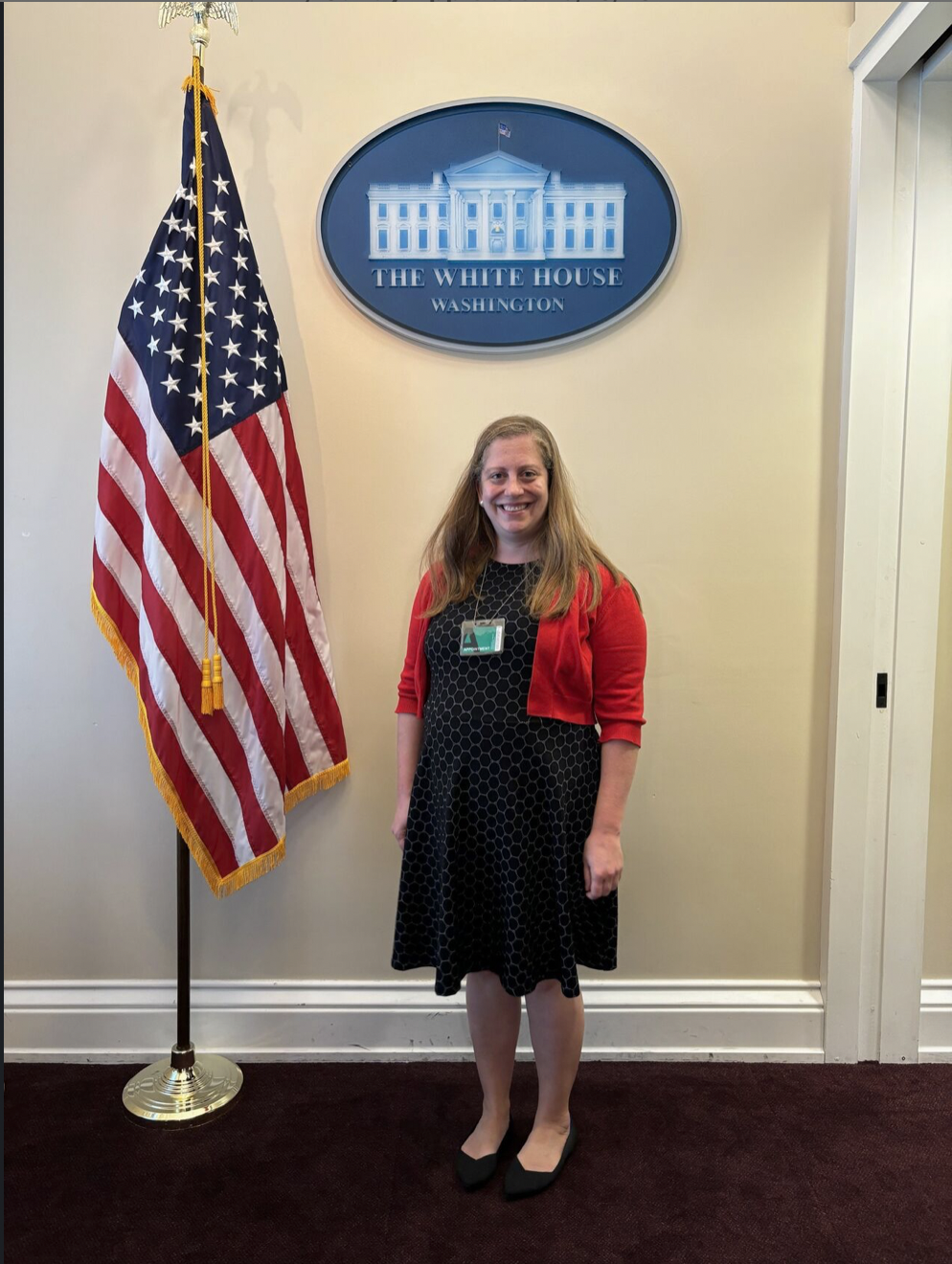
Stephanie Krenrich is invited to the White House on the anniversary of the Inflation Reduction Act (IRA).
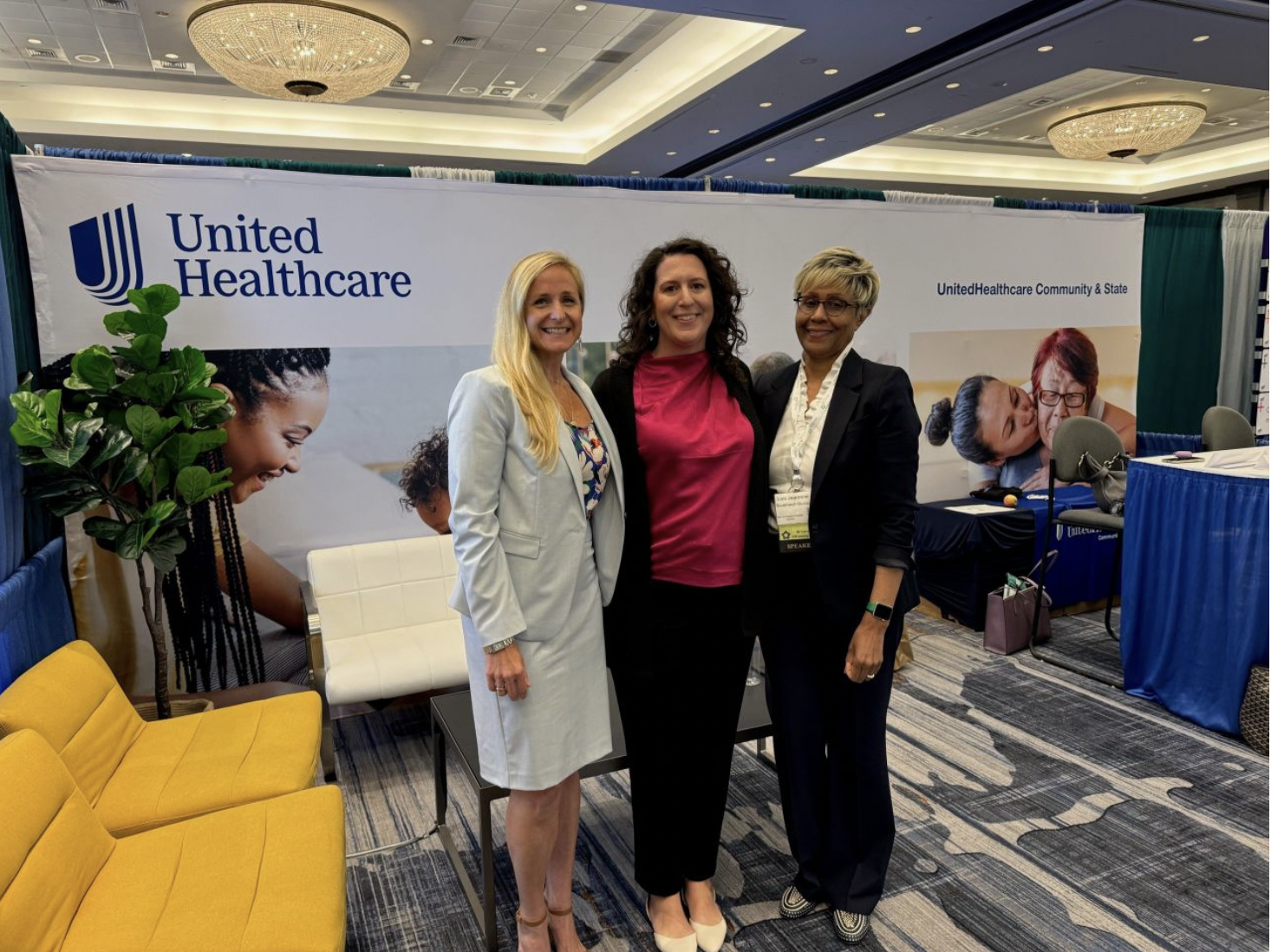
Amanda Pears Kelly presents with UnitedHealthcare at the Home and Community-Based Services Conference during a session on CHCs and older adults in underserved communities.
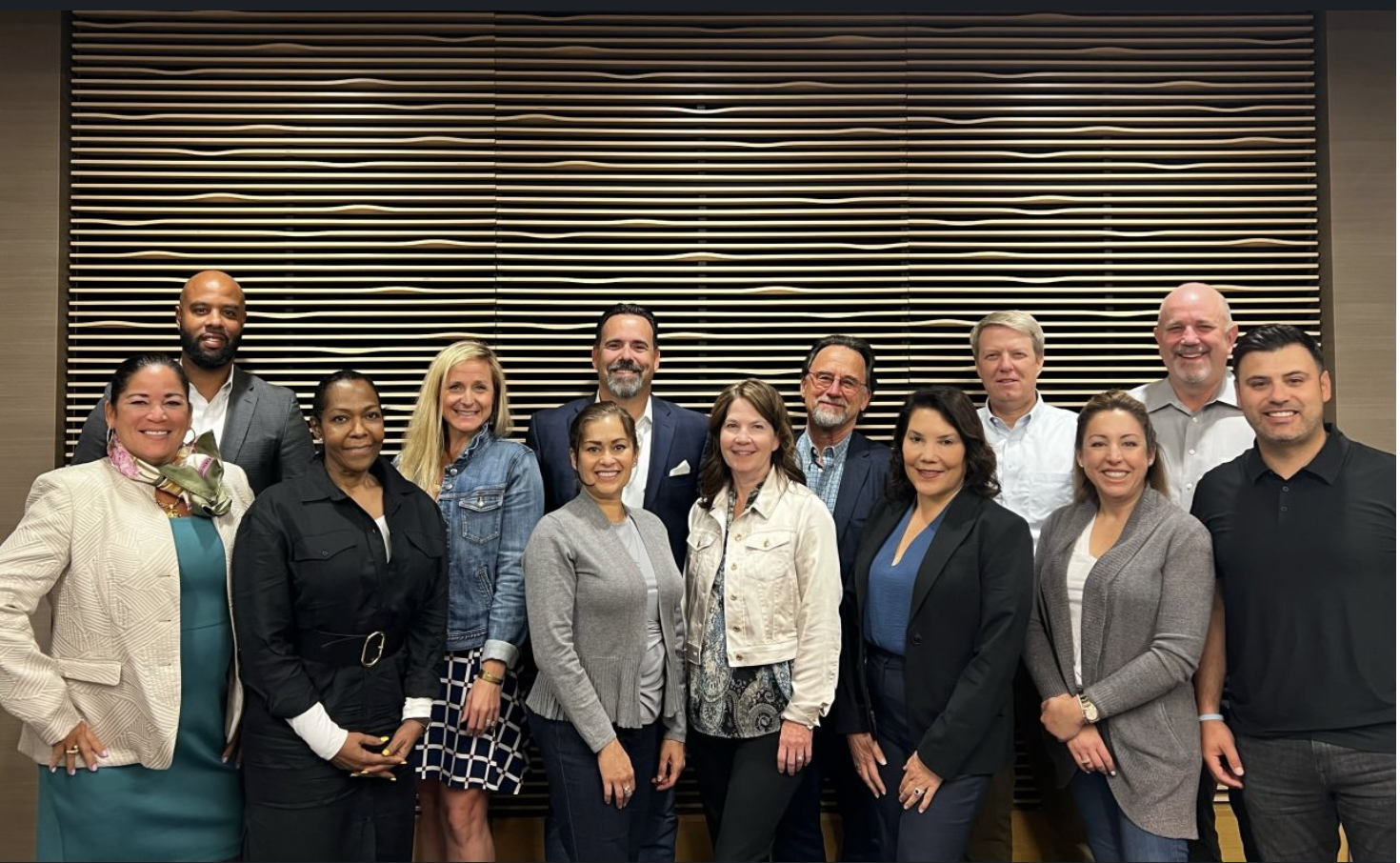
ACH's Board of Directors and Executive Policy Advisory Council meet in Chicago for a strategic planning session to chart the future of ACH.
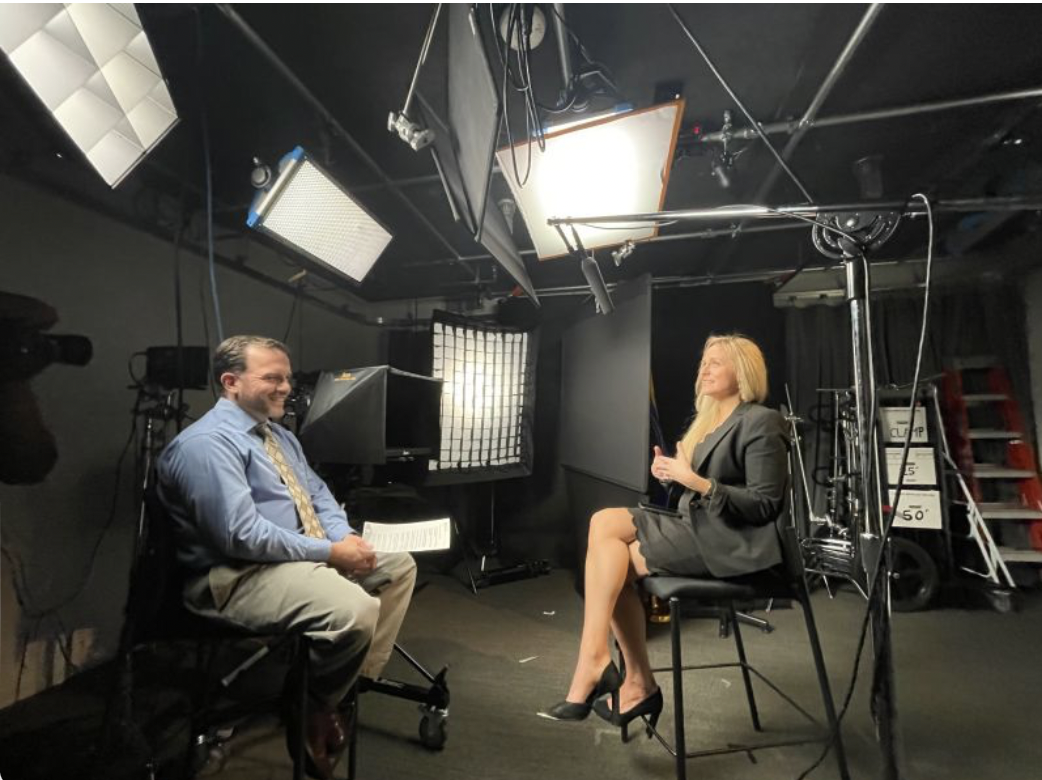
Amanda Pears Kelly is interviewed by the Health Resources Services Administration (HRSA) for a project to document the history of the Health Center Program.
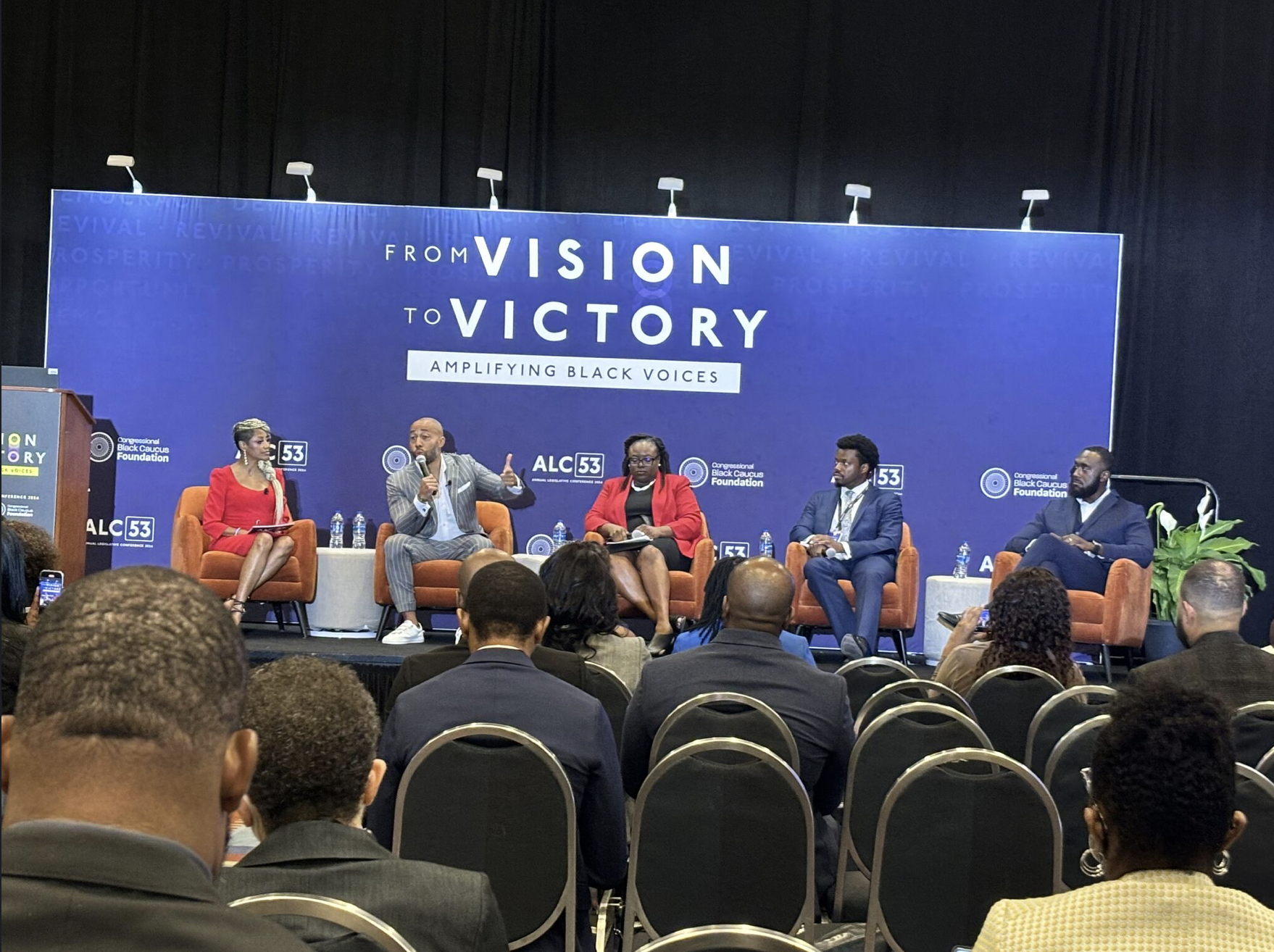
ACH co-sponsors a session at the Congressional Black Caucus on empowering black fathers to be allies for black maternal health.
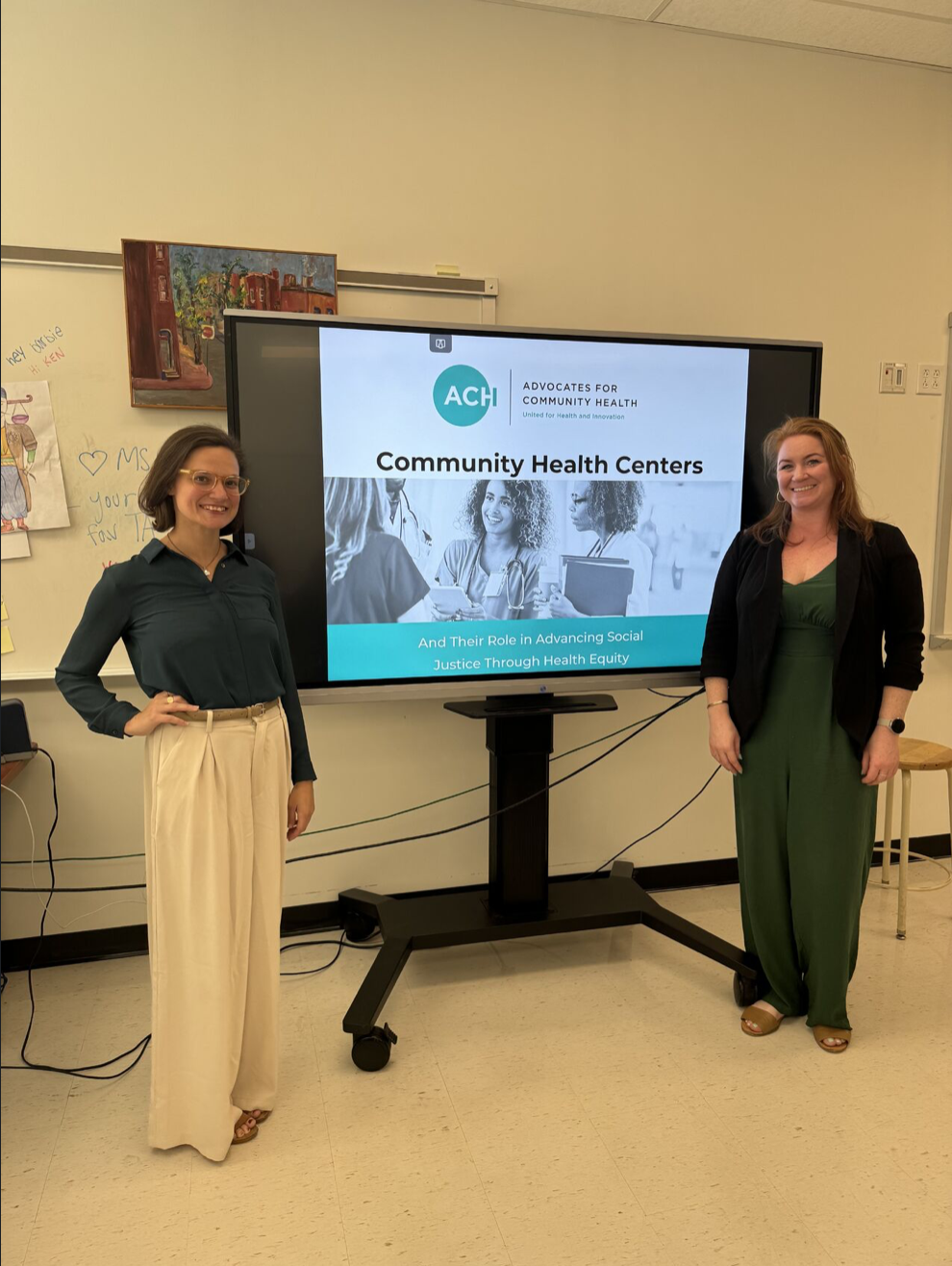
ACH's Molly Grady and Kristen Constantine present to students on community health centers at Walt Whitman High School's Leadership Academy for Social Justice Fair.
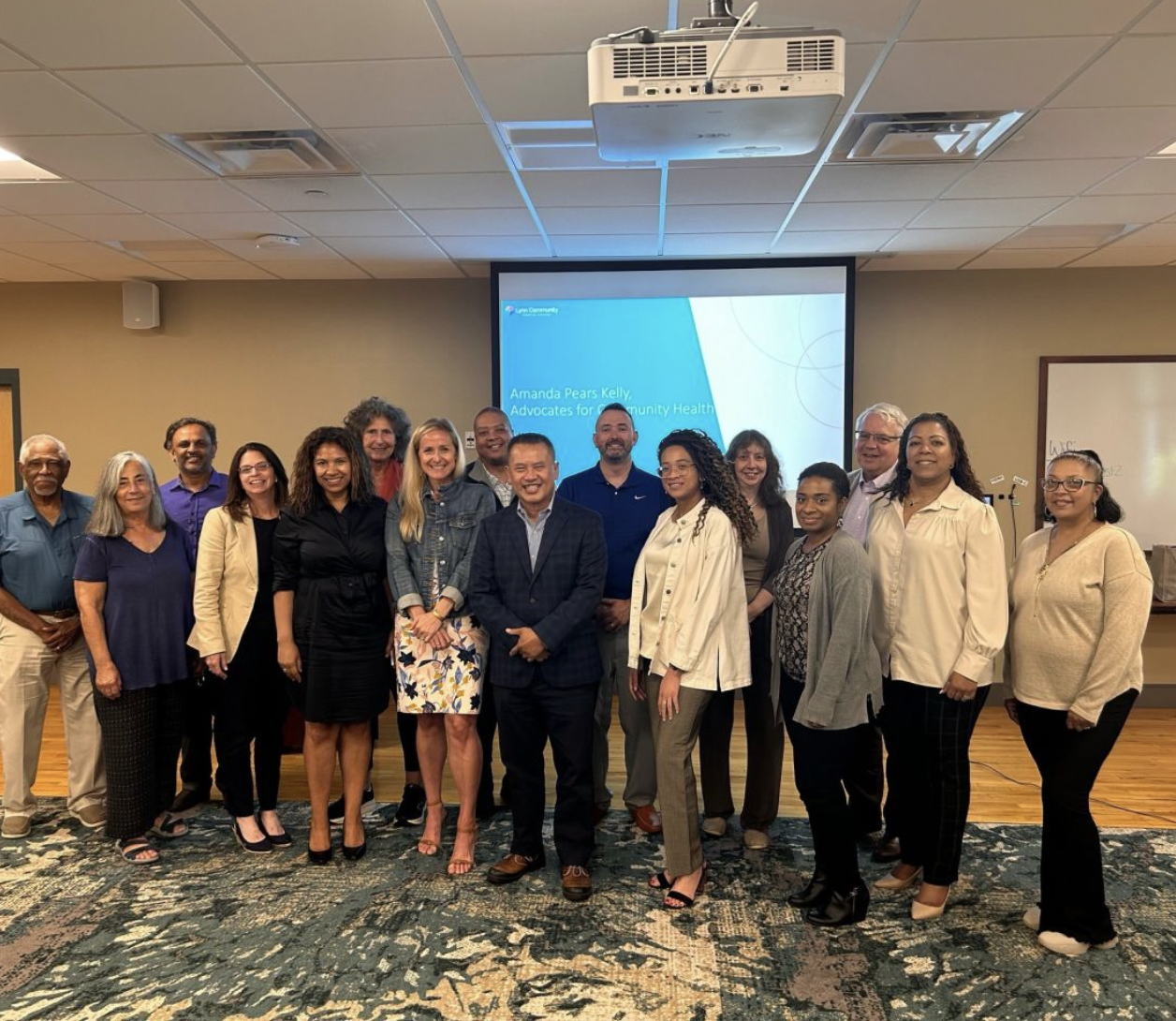
Amanda Pears Kelly is invited to speak at Lynn Community Health Center's Board Meeting.
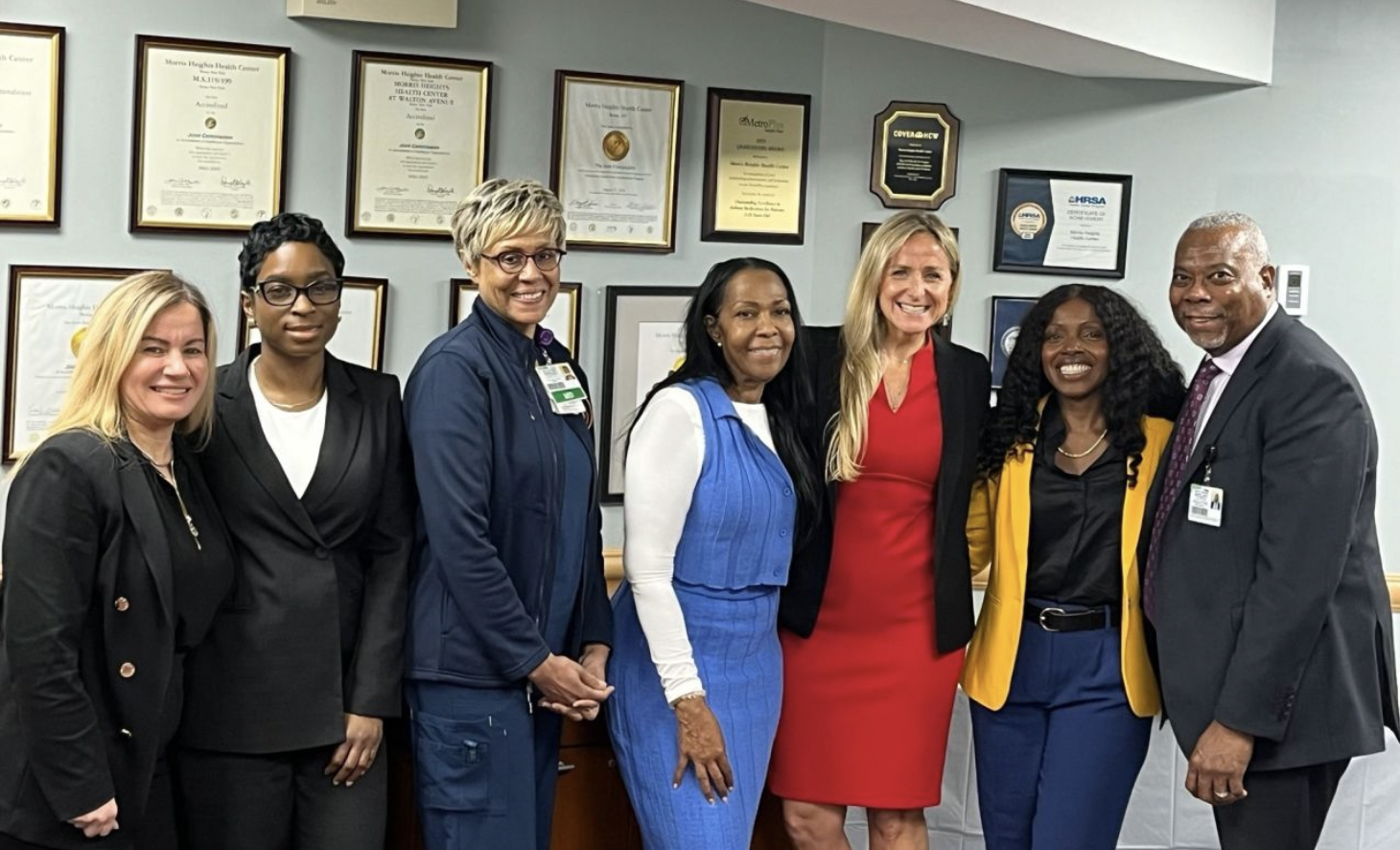
Amanda Pears Kelly visits ACH member Morris Heights Health Center located in Bronx, NY.

ACH's Value-Based Care Peer Learning Collaborative meets to discuss advanced payment reform at CHCs.
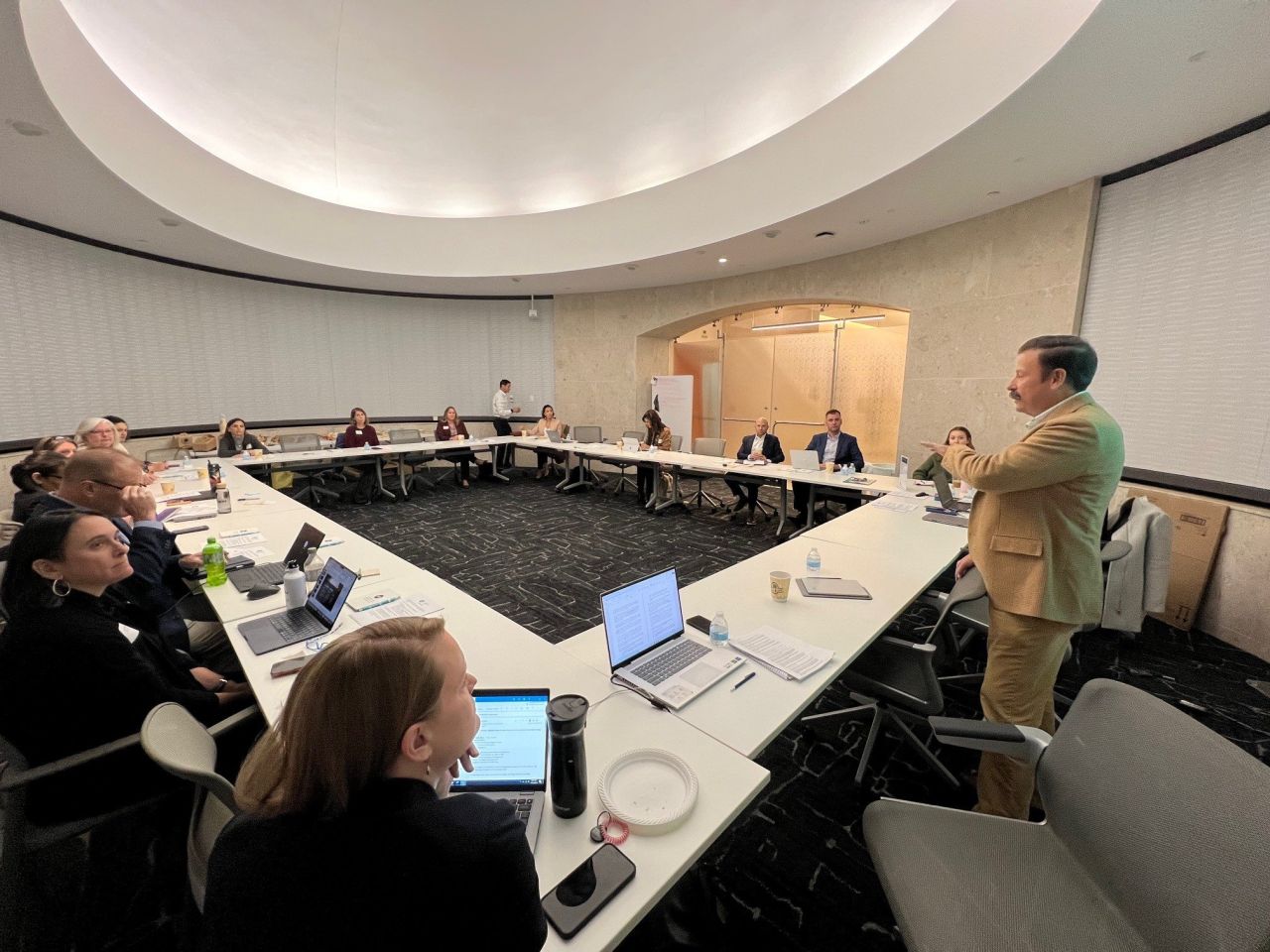
ACH's largest member Peer Learning Collaborative yet on 340B Reform kicks off in Washington, DC.
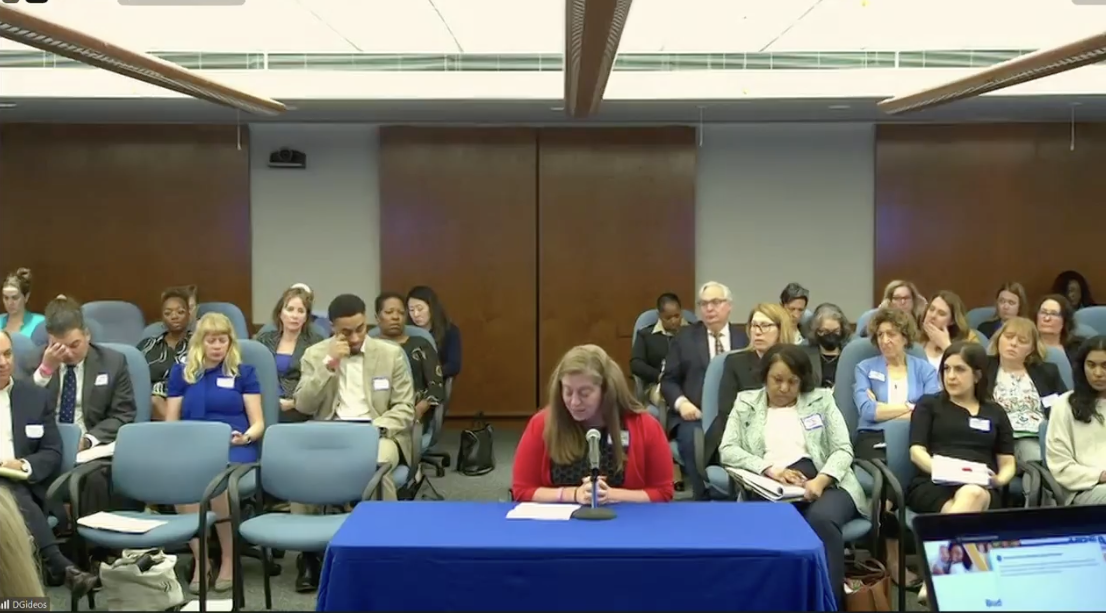
Stephanie Krenrich presents health center policy priorities at the HRSA, HHS FY 2026 budget listening session.
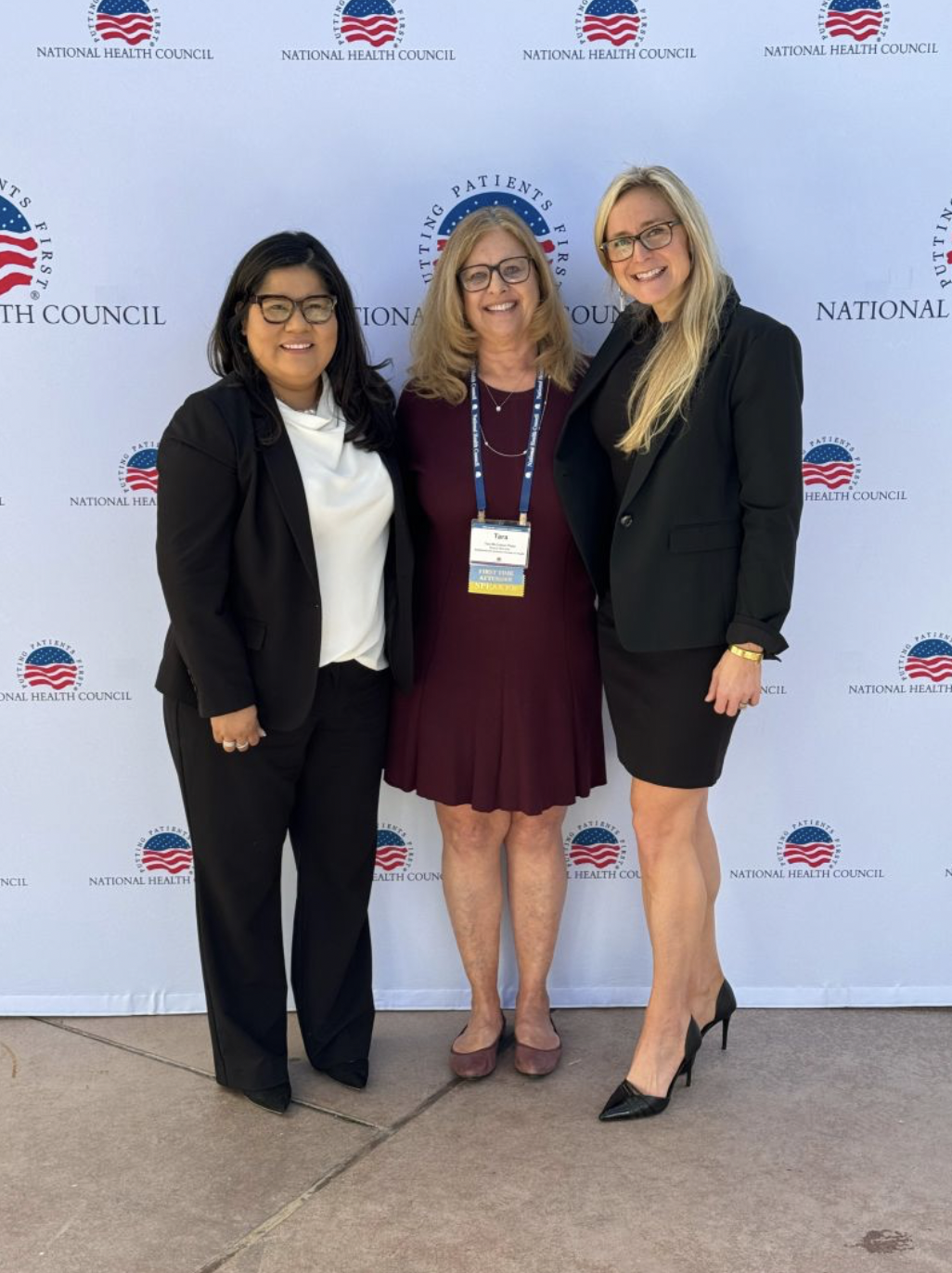
Amanda Pears Kelly presents at the National Health Council's Health Leadership Conference on growing health equity successes from the grassroots.
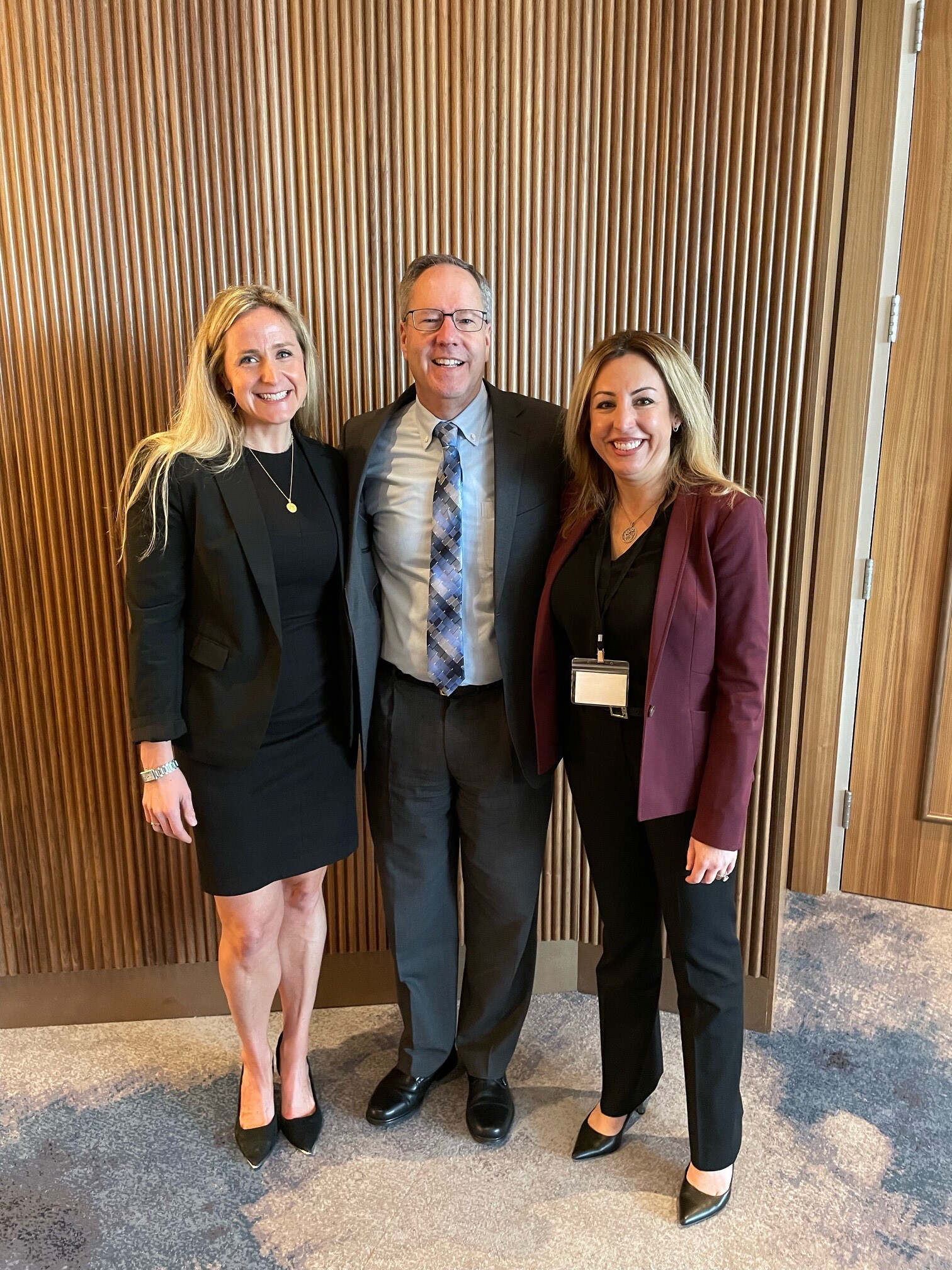
Amanda Pears Kelly and ACH's Board Chair Kerry Hydash with HRSA Bureau of Primary Care Associate Administrator Jim Macrae.

ACH's Sami Noble visits Morris Heights Health Center's Halloween event for patients in Bronx, NY as part of ACH's CHC Best Practices visits.

ACH members Dr. Jessica Boyd, CEO of Unity Health and Rashad Collins, CEO of Neighborcare Health with HRSA Administrator Carole Johnson, Amanda Pears Kelly, and Jim Macrae.
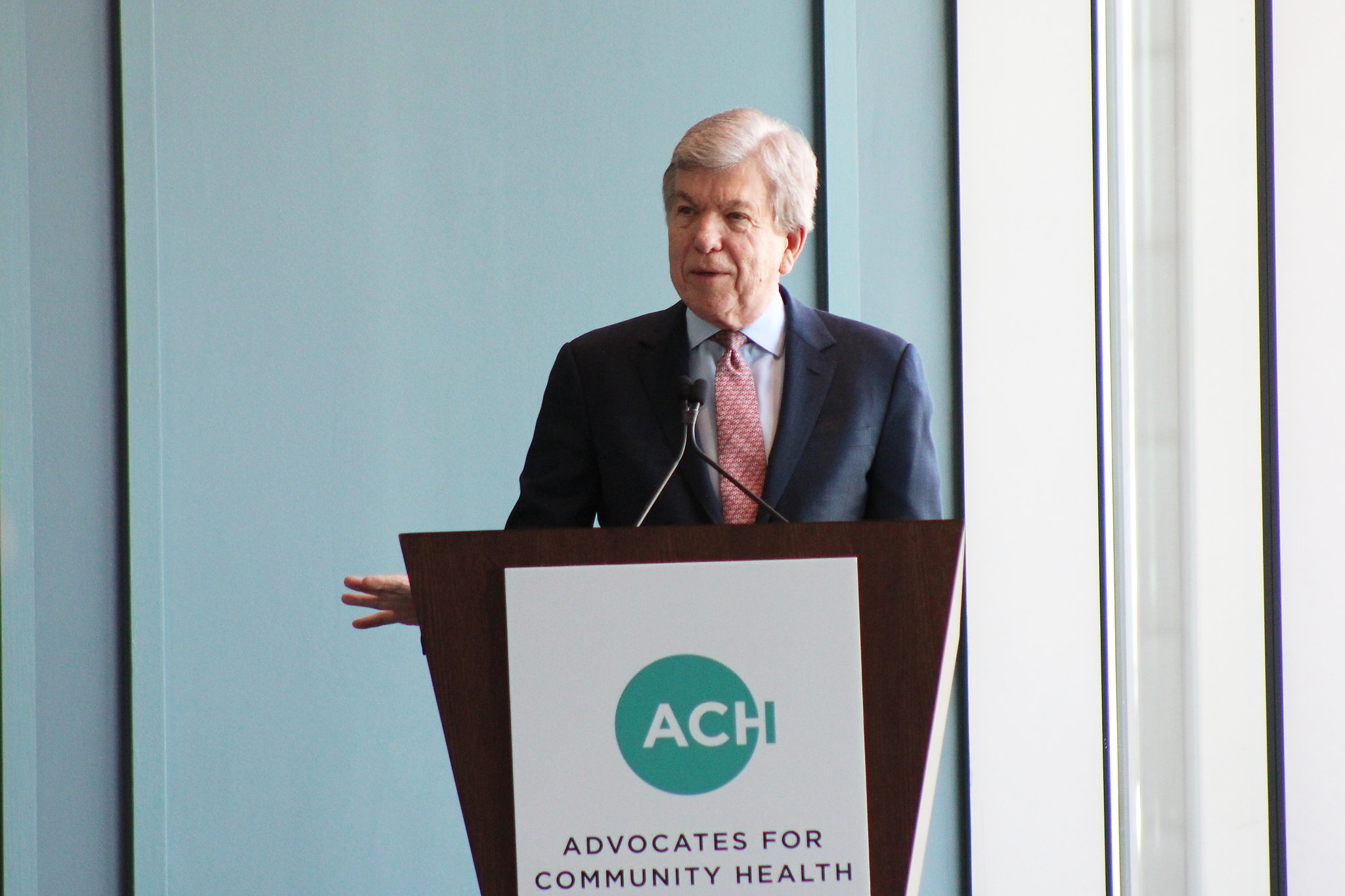
Former Senator Roy Blunt (R-MO) delivers a keynote address at ACH's Annual Member Meeting.
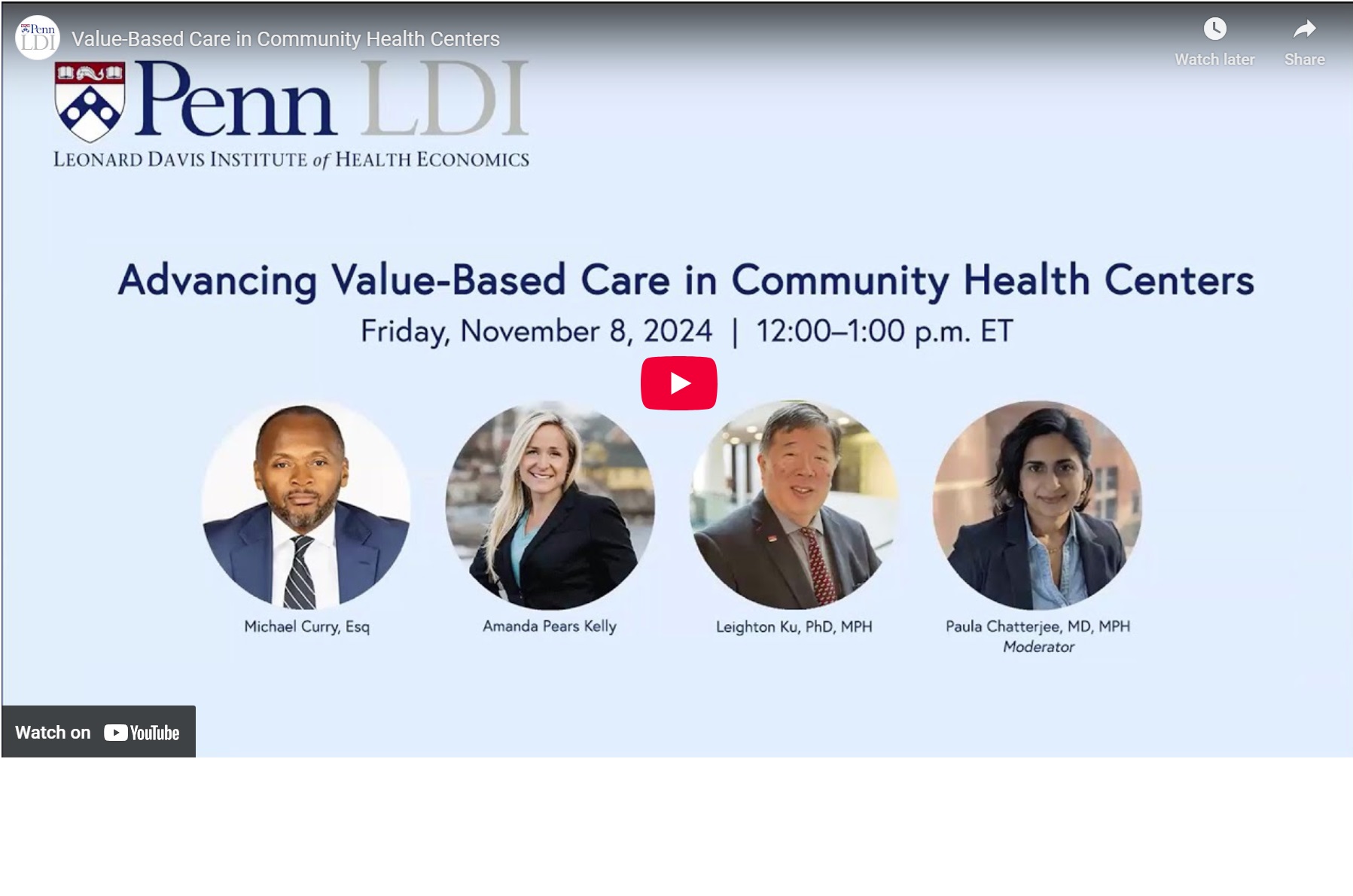
Amanda Pears Kelly is invited to speak at a virtual seminar hosted by the University of Pennsylvania on value-based care at CHCs.

Amanda Pears Kelly and NACHC President & CEO Kyu Rhee record a joint statement on the urgency of congressional funding before the CHC Fund expires at the end of the year.
Relentless: Health Center Member Advocates
Advocate of the Year
North East Medical Services (NEMS) Government & Community Affairs Director Jessica Ho was named ACH’s 2024 Advocate of the Year. NEMS is one of the largest community health centers in the United States targeting the medically underserved Asian-American population. The Advocate of the Year is given to an individual ACH member who has excelled in grassroots advocacy for health centers throughout the year.
Read more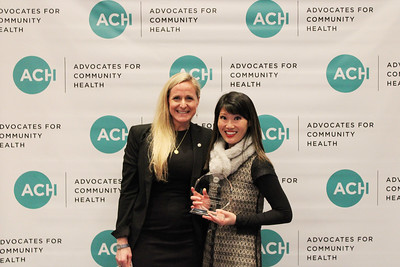
David B. Vliet Changemaker Award
Tampa Family Health Centers President and Chief Executive Officer Sherry Hoback won the inaugural David B. Vliet Changemaker Award for her outstanding contributions to the Health Center Program and advocacy on behalf of health center patients.
Read more
Founding ACH Member David B. Vliet Retires
David B. Vliet’s vision helped establish ACH in 2021 as a market disruptor to meaningfully impact public policy, drive health equity and breathe new vision into the health center program. In 2024, he retired from LifeLong Medical Care, leaving a long legacy in advocating for the underserved.
Read more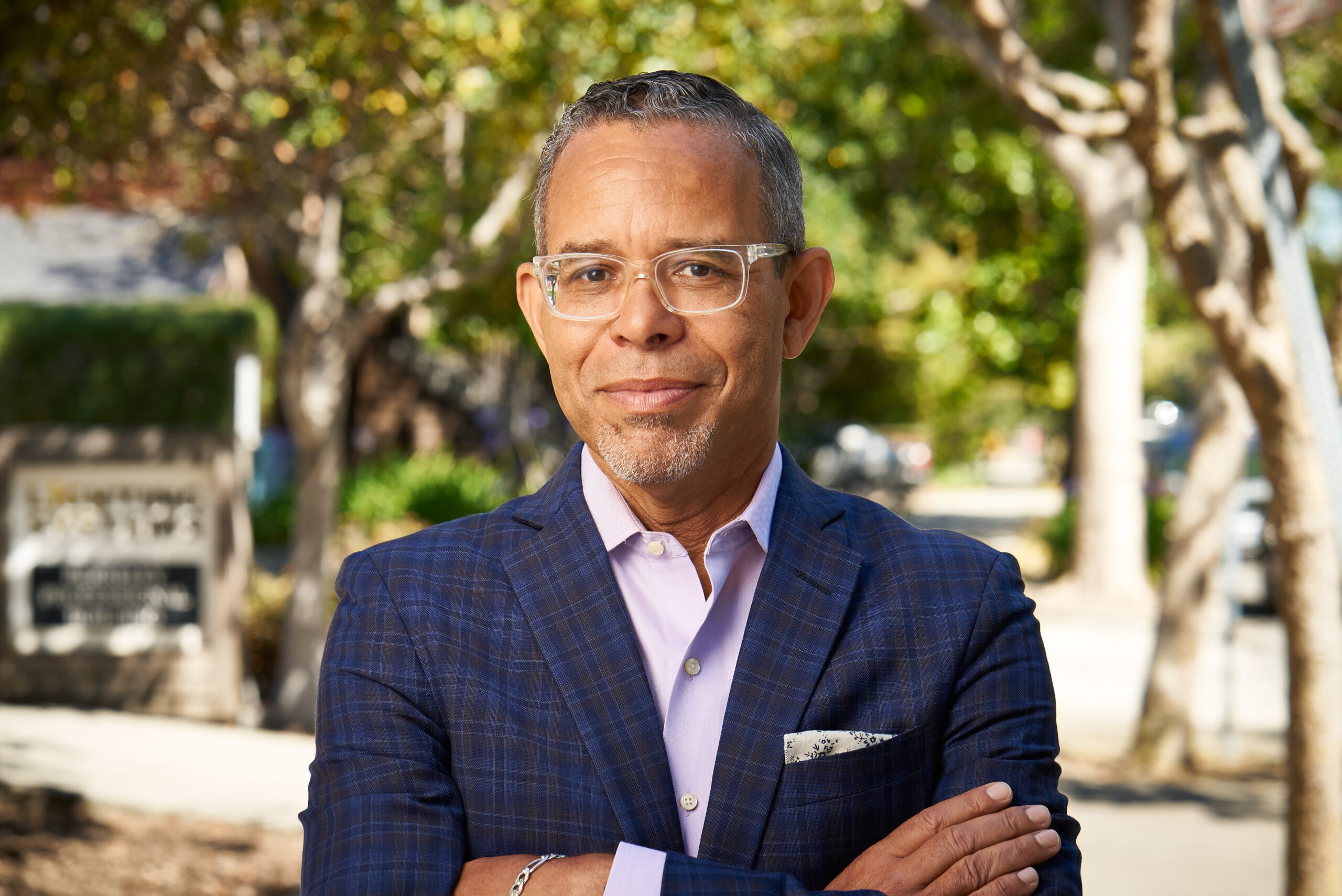
Who We Are
Advocates for Community Health (ACH) is a nonpartisan membership organization focused on visionary and innovative policy and advocacy initiatives to effect positive change across the nation’s health care system. Rooted in community health, our membership comprises forward-thinking, federally qualified health centers (FQHCs) that are leading the way in modeling comprehensive, integrated primary care and cutting-edge innovation to help shape a rapidly evolving health care landscape.
ACH Leadership
Board of Directors Executive Committee
- Kerry Hydash, Board President, President & CEO, Family HealthCare Network
- Steven C. Hansen, President & CEO, Presbyterian Medical Services
- Greg Wilmot, President & CEO, NeighborHealth
- Nieves Gomez, President & CEO, Columbia Basin Health Association
ACH Staff
- Amanda Pears Kelly, Chief Executive Officer
- Abby Miller, Chief Financial Officer & Chief Human Resources Officer
- Stephanie Krenrich, Senior Vice President, Policy & Government Affairs
- Sandy Applebee, Associate Vice President, Communications & Marketing
- Molly Grady, Director, Policy & Government Affairs
- Samantha Noble, Director, Grassroots Advocacy & Membership
- Liezl Perez Schewe, Director, Programs & Engagement
- Joshua Cheung, Administrative Assistant
About ACH
Mission
To advance the Health Center mission by advocating for bold and meaningful health policy changes.